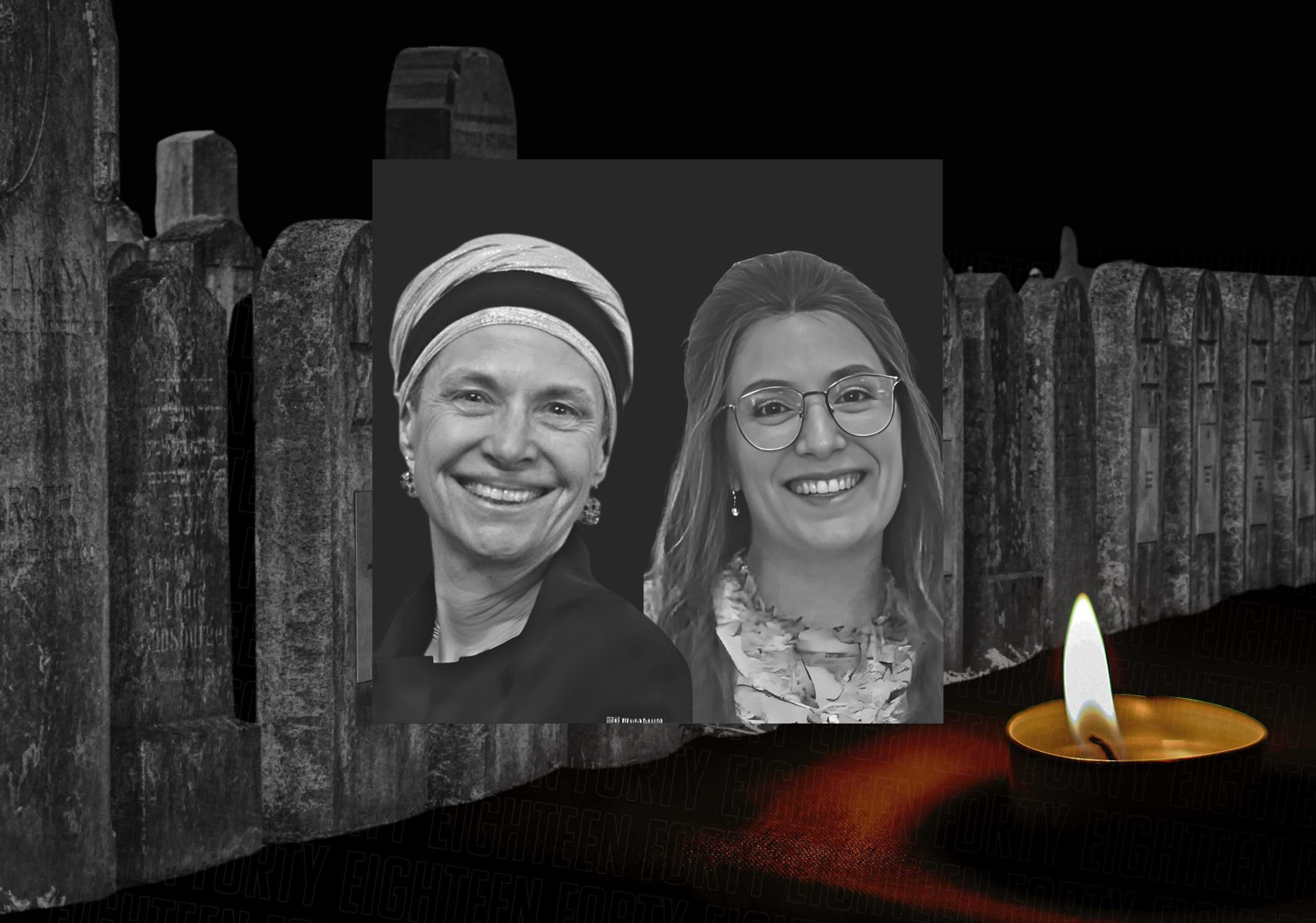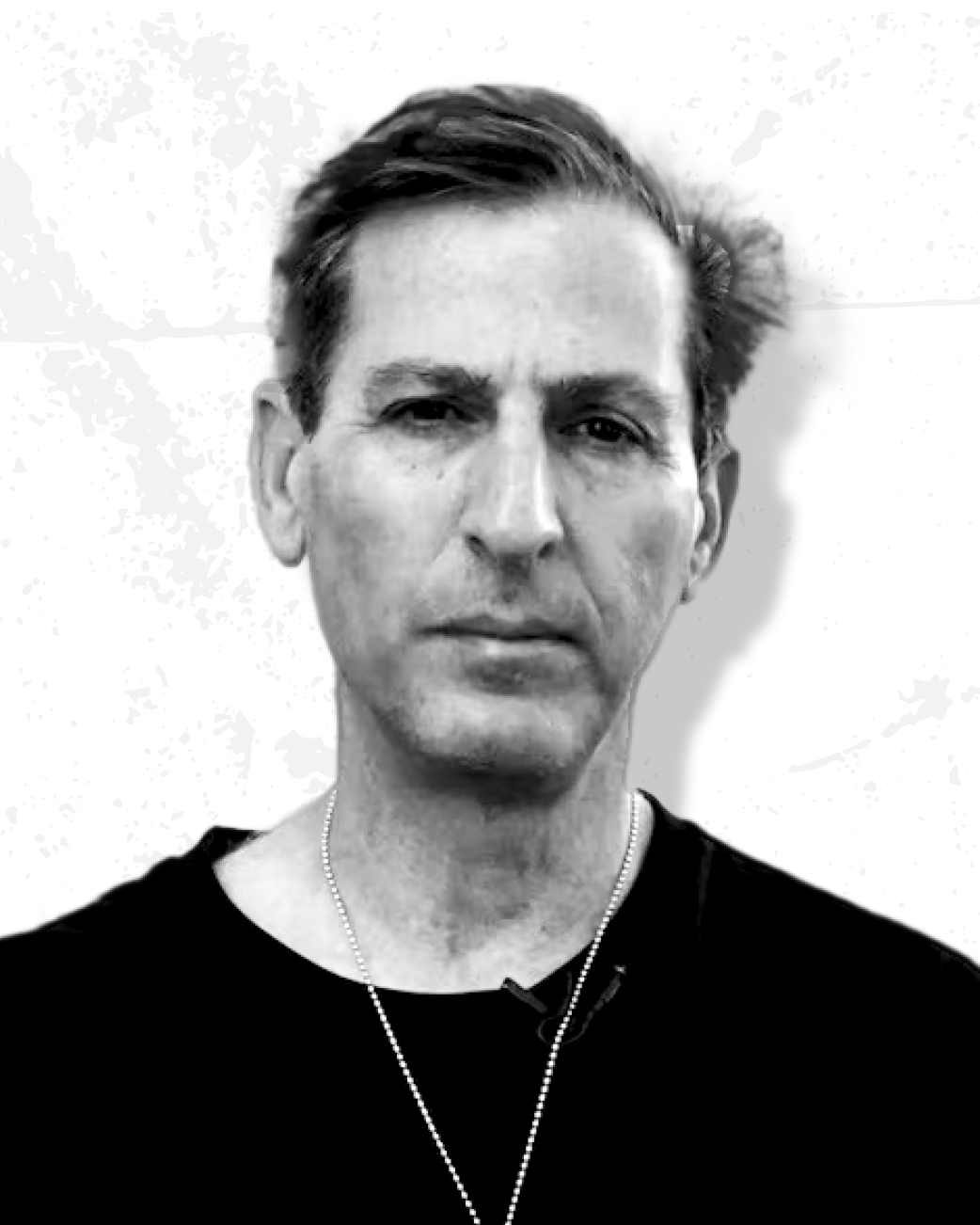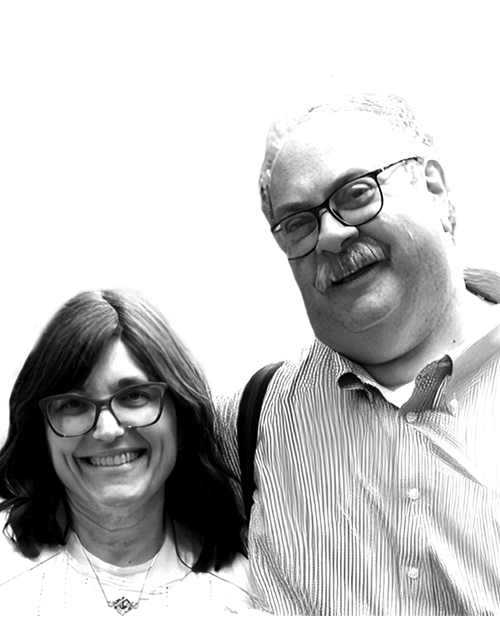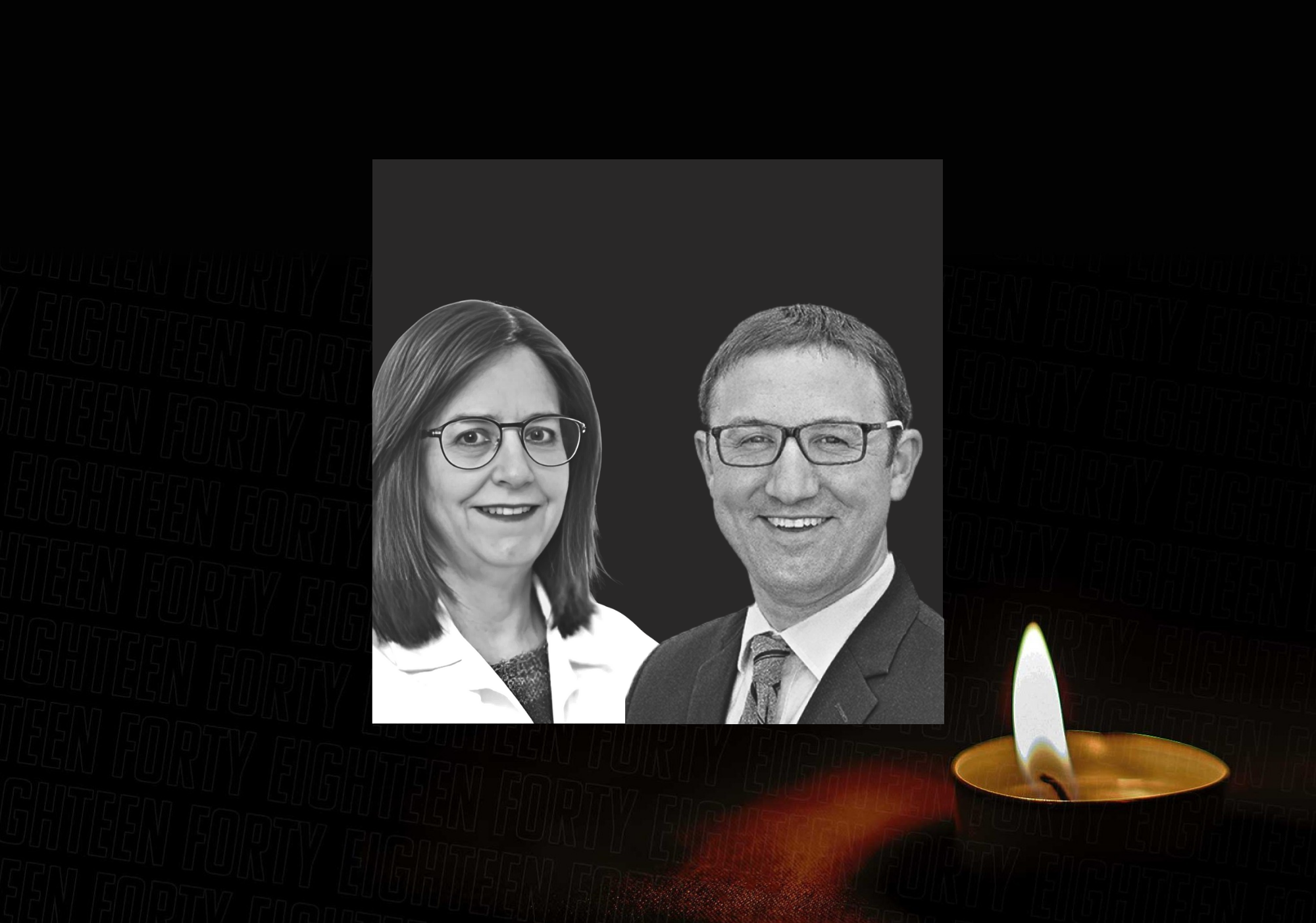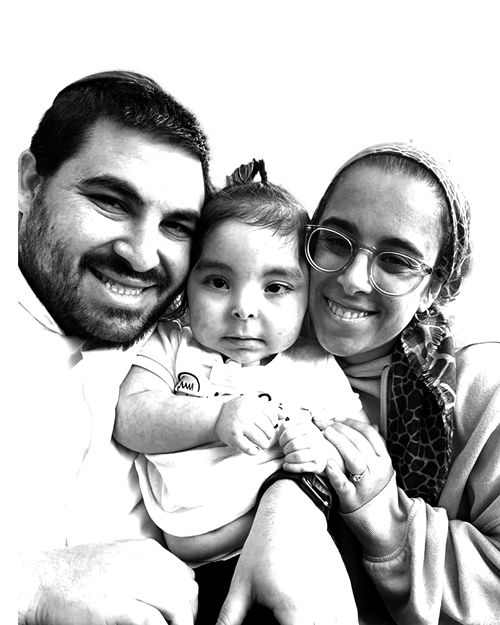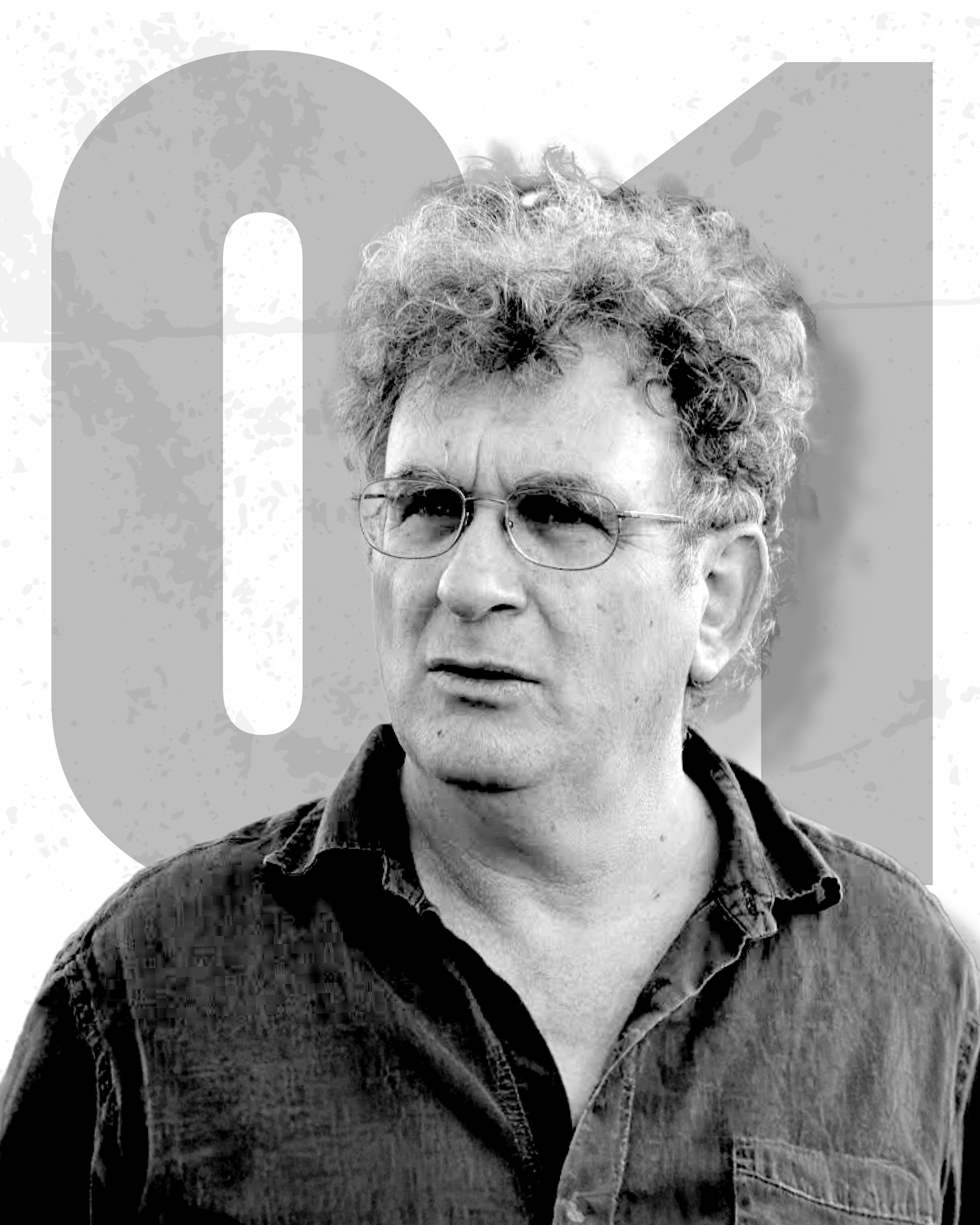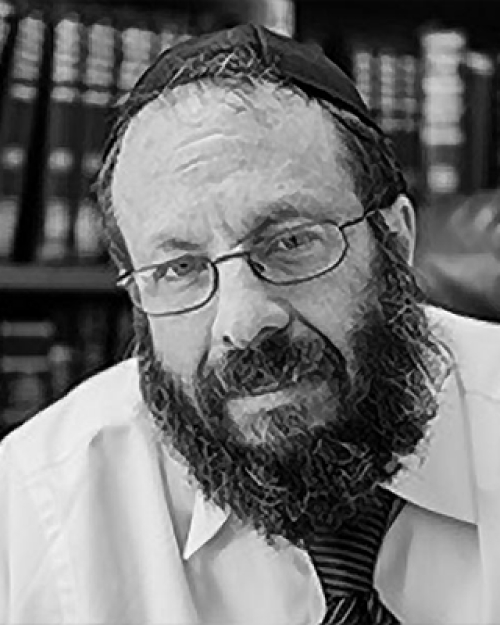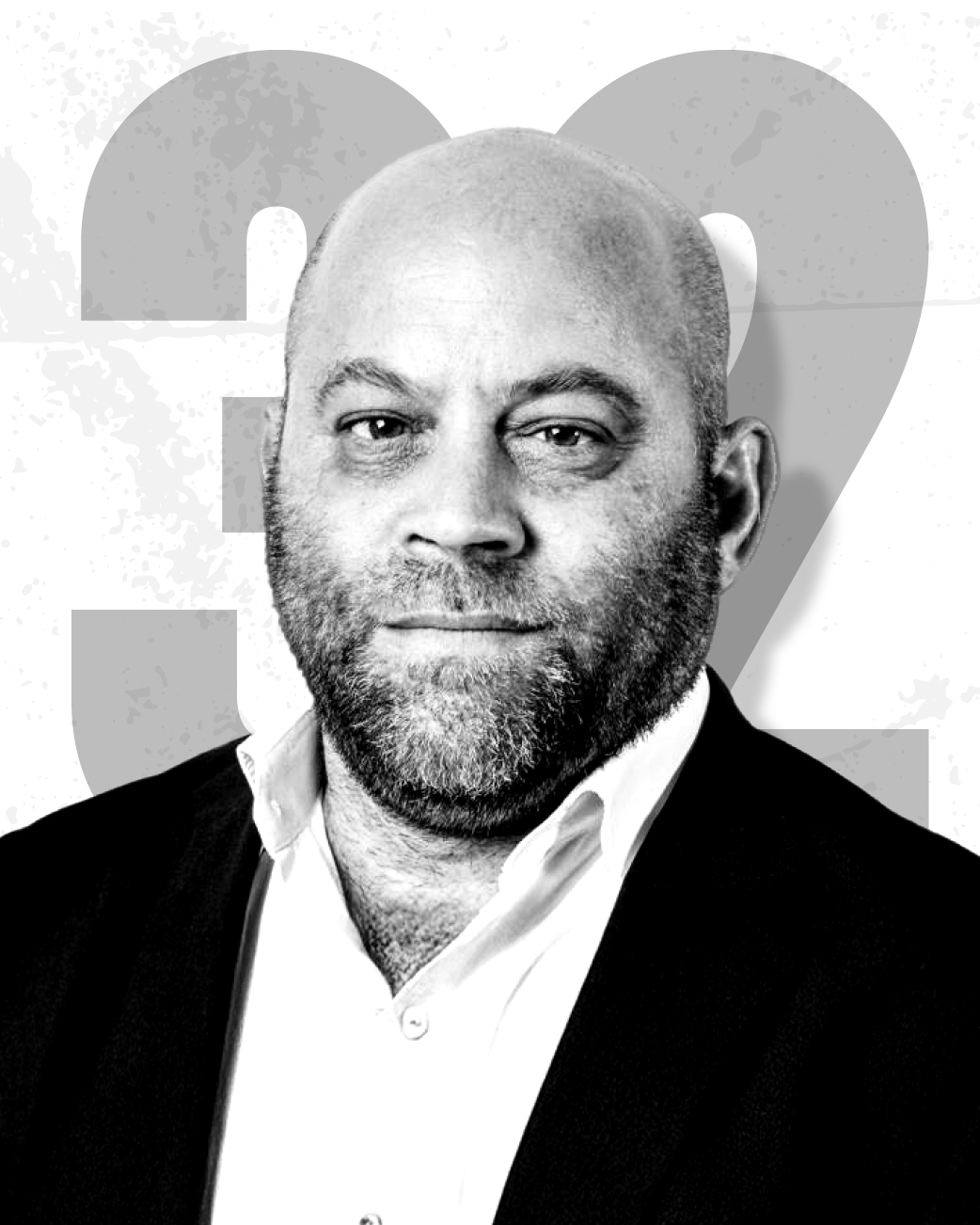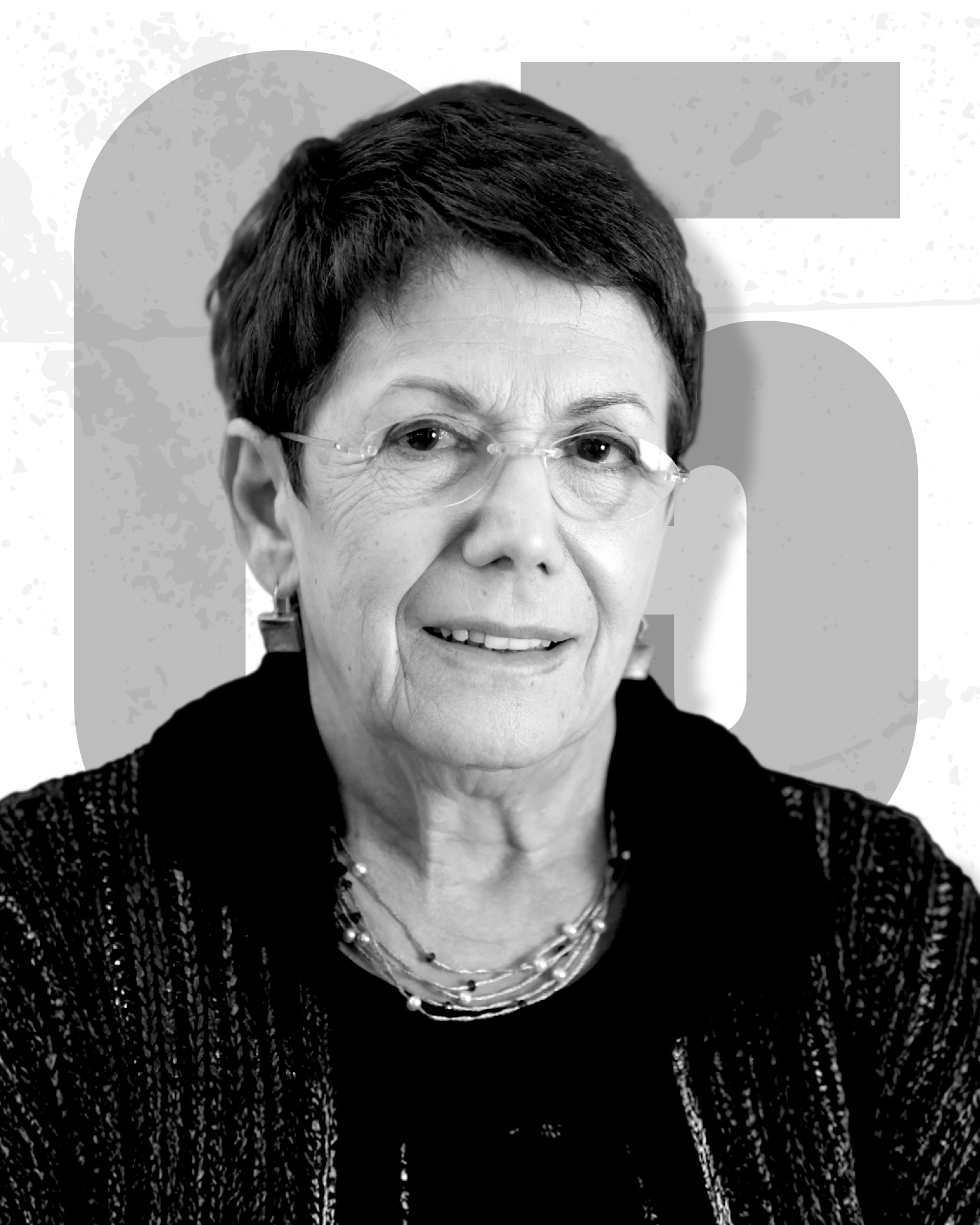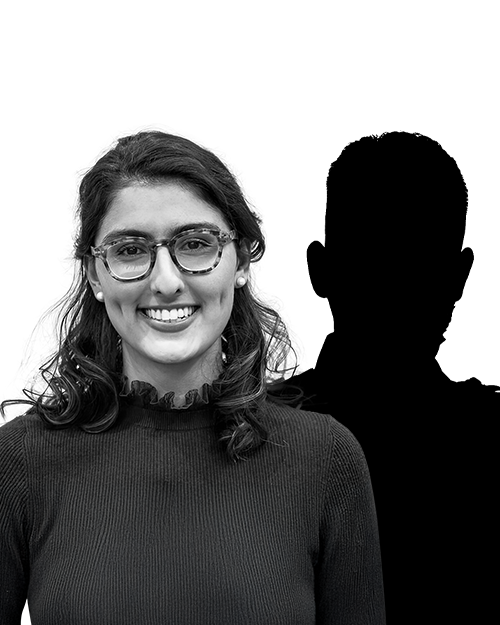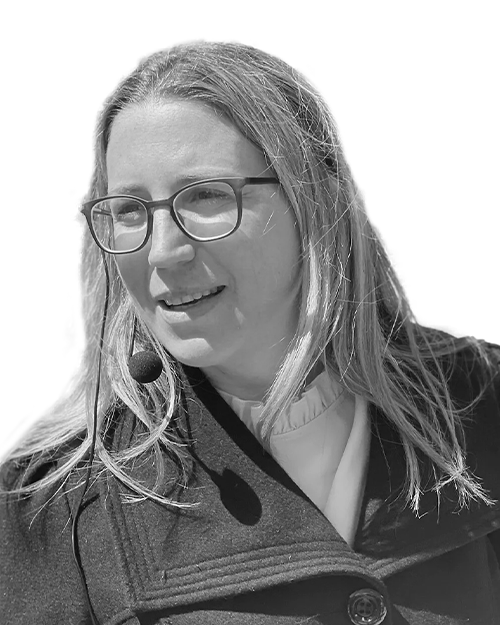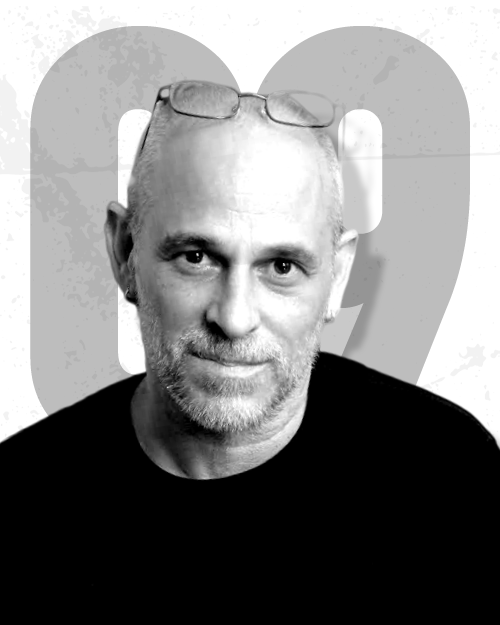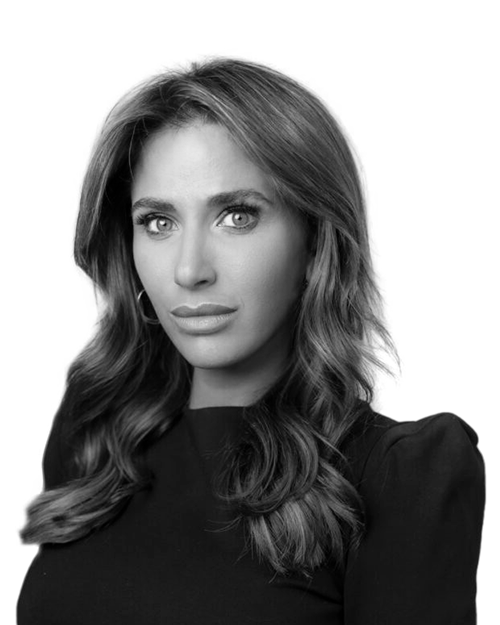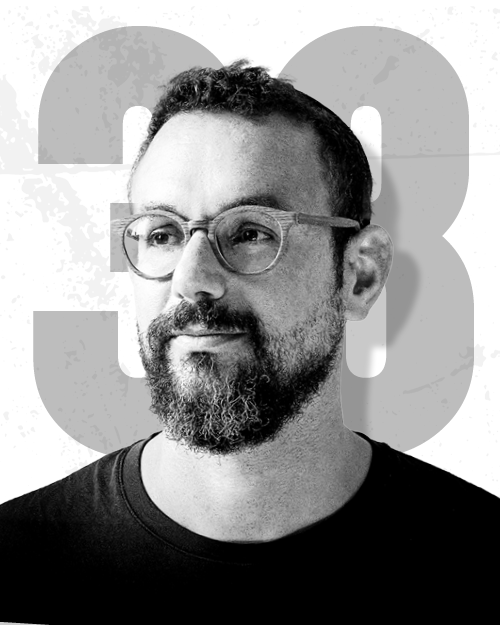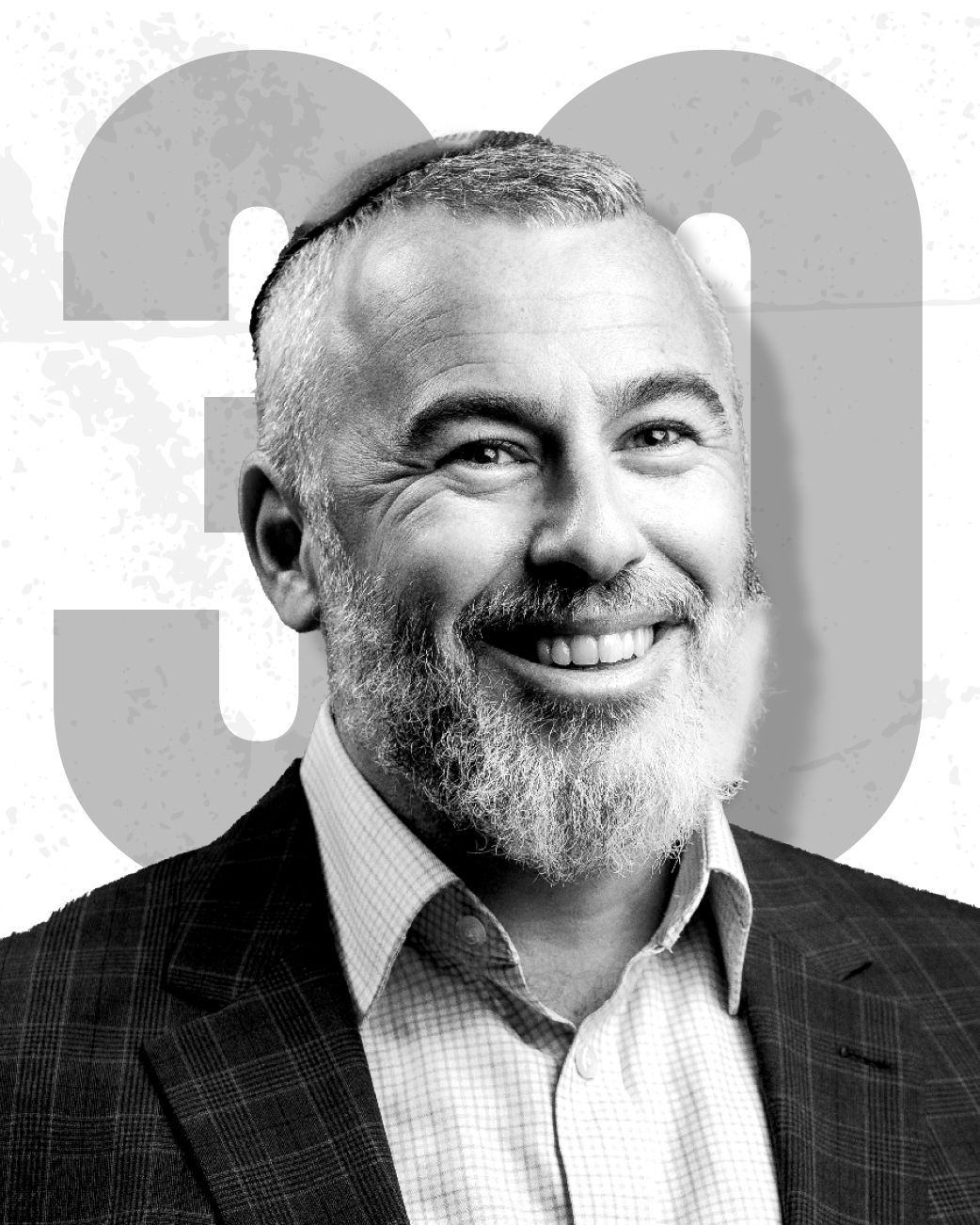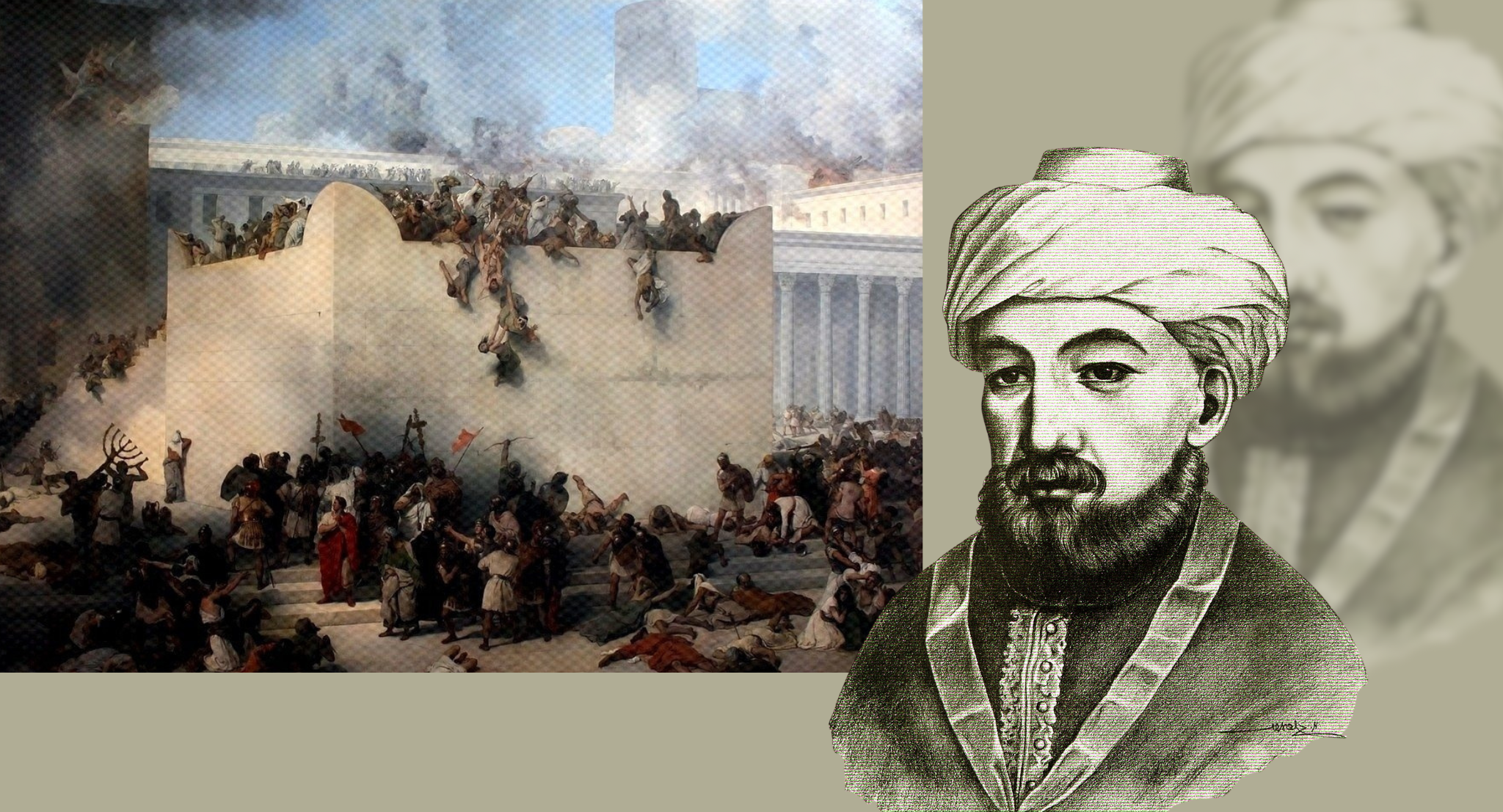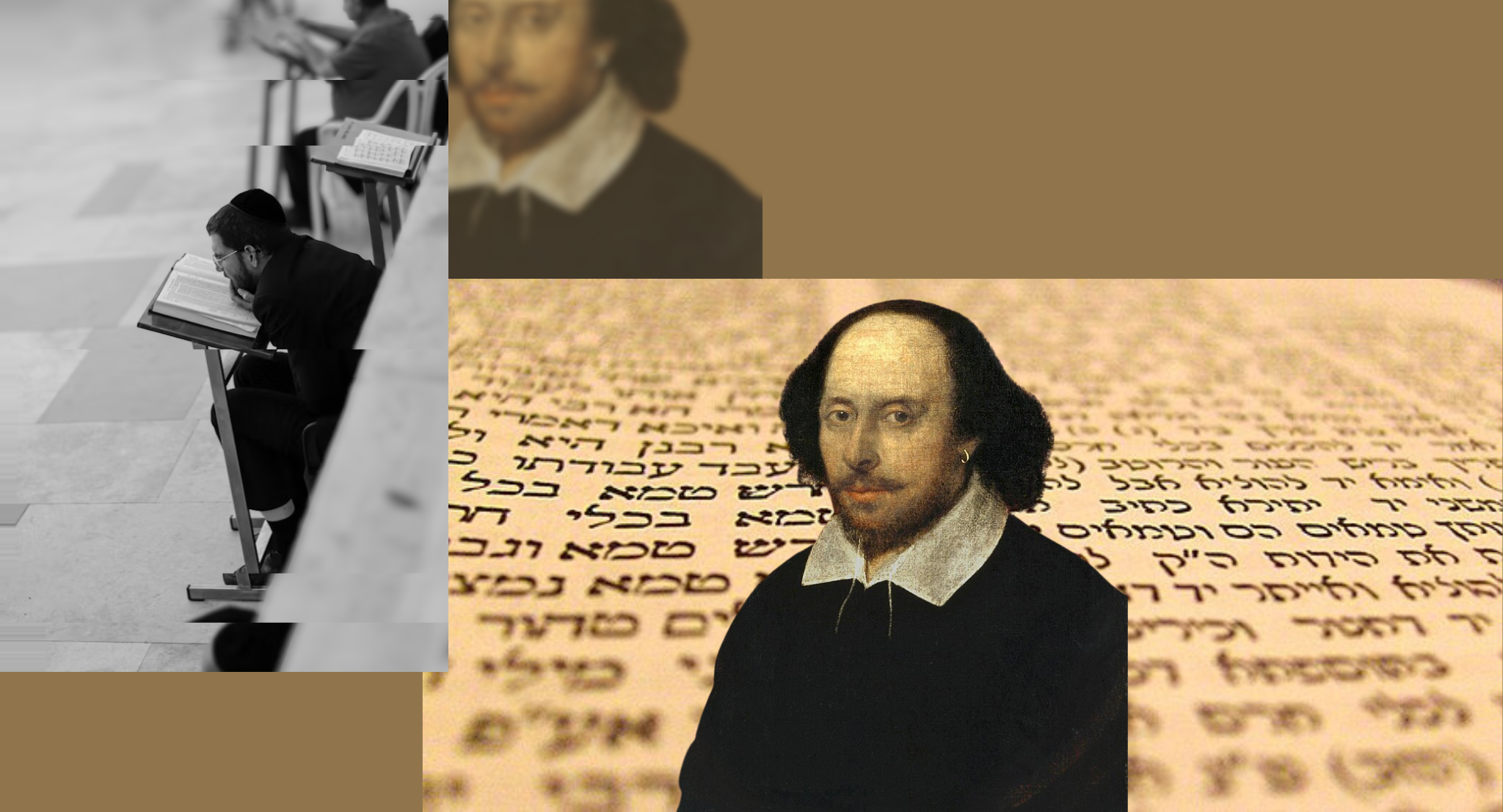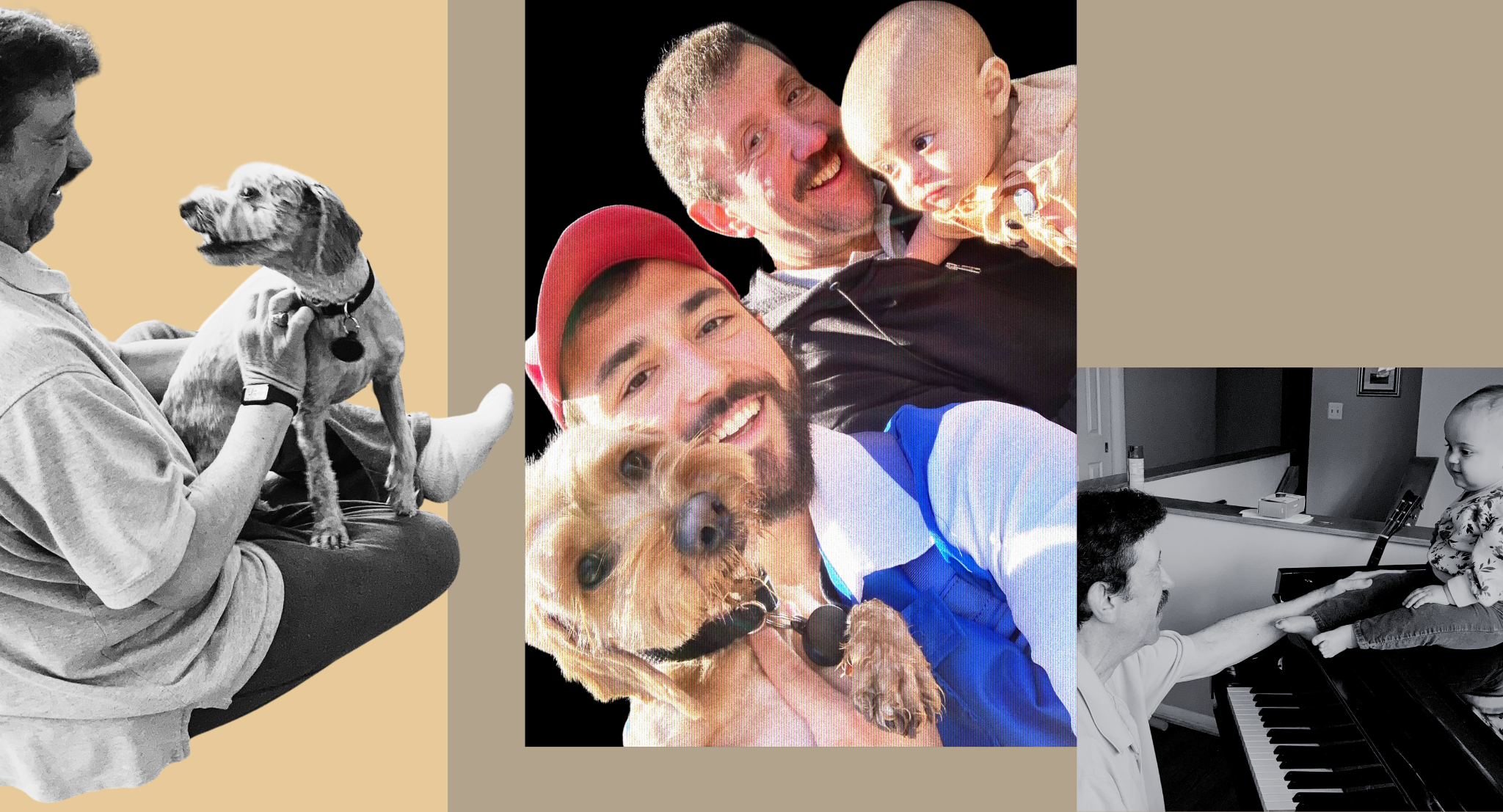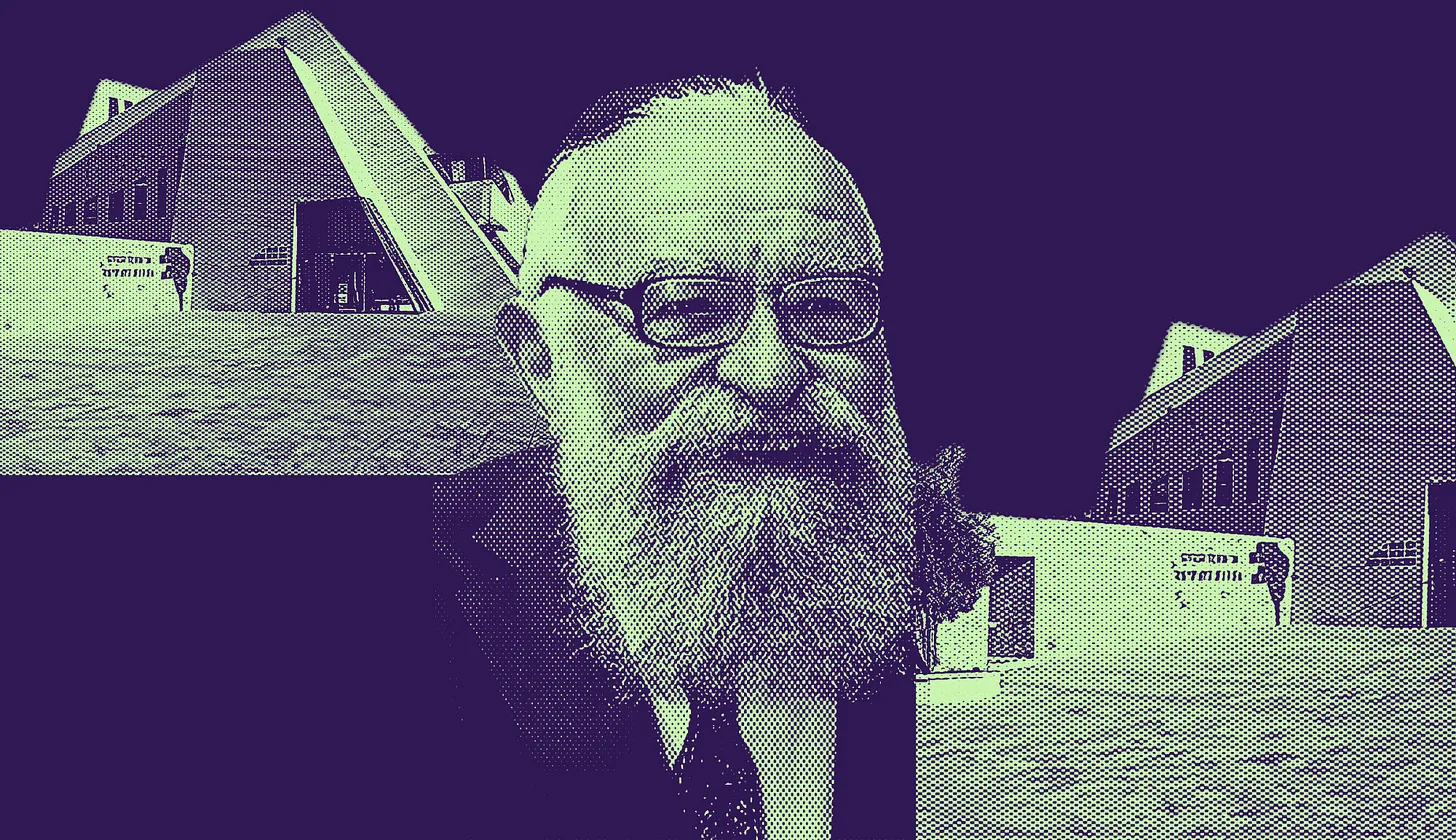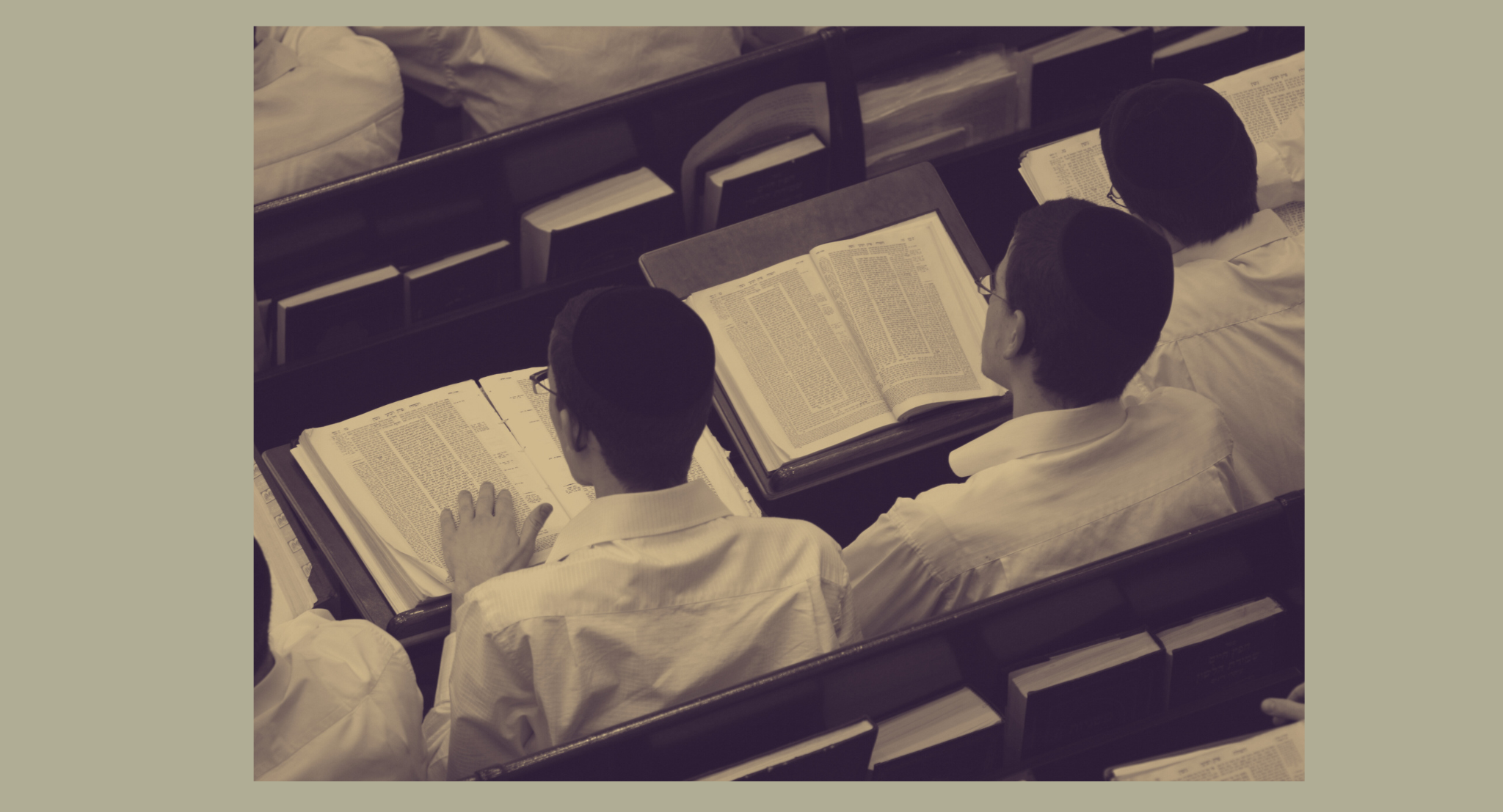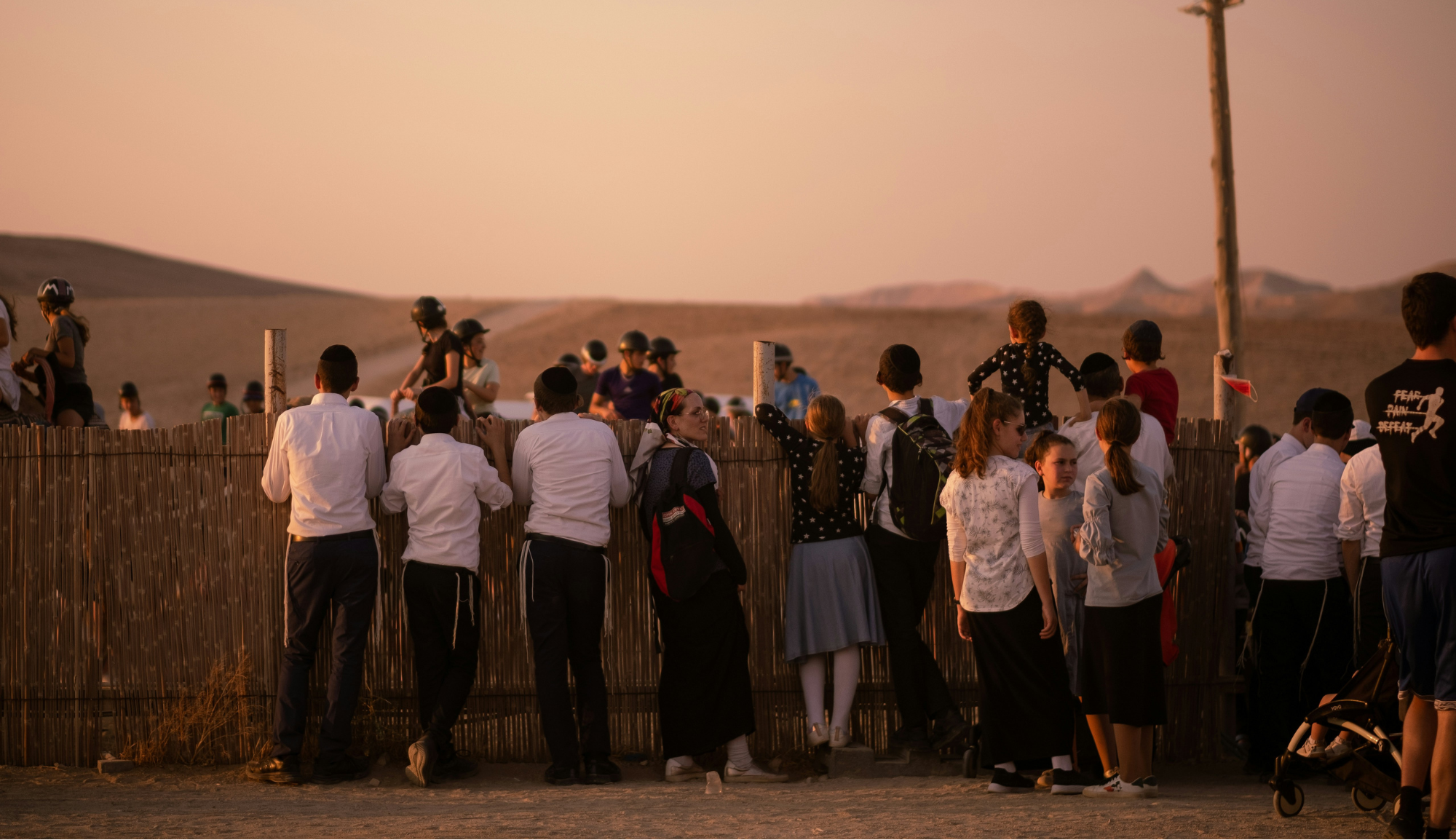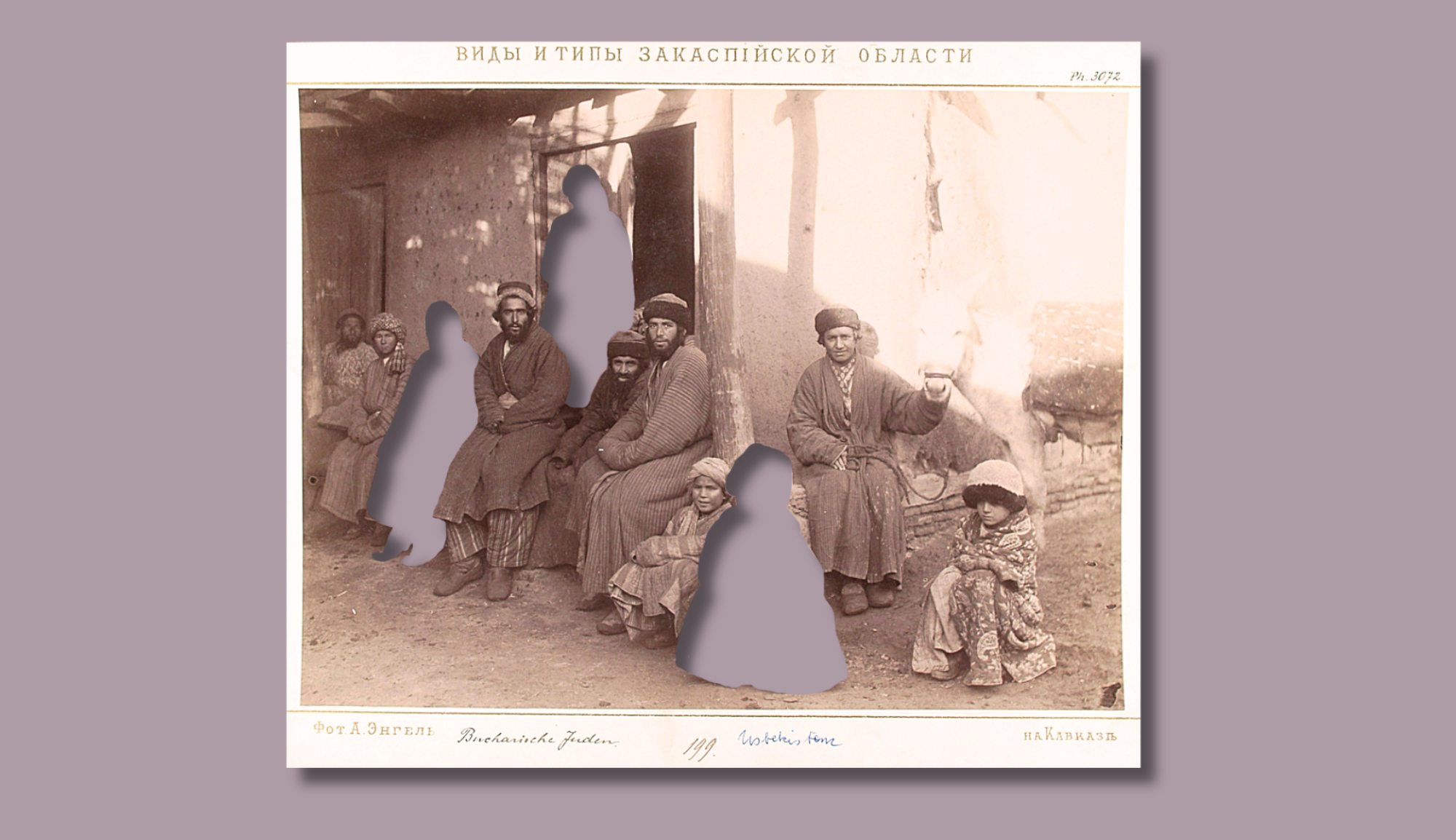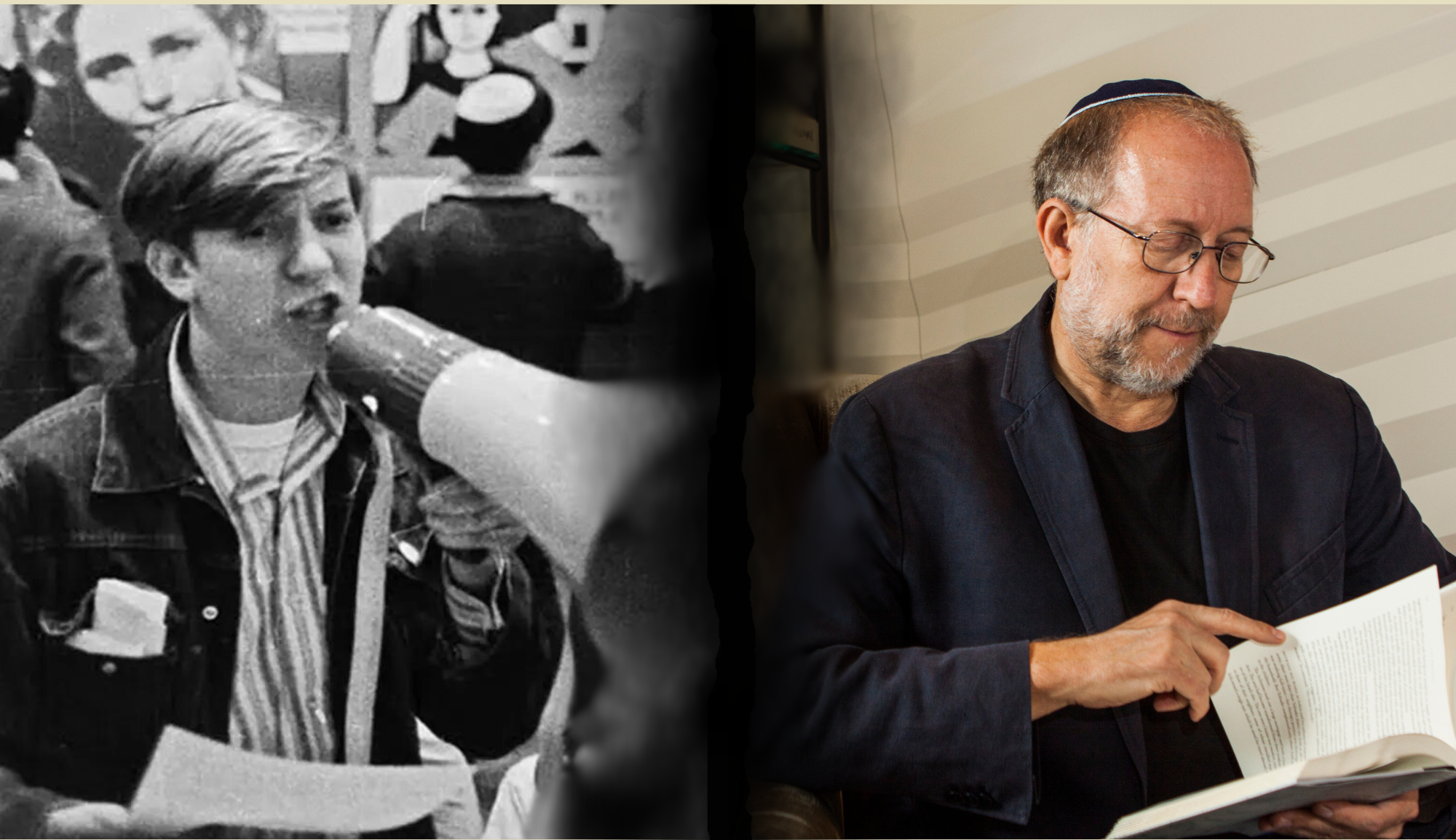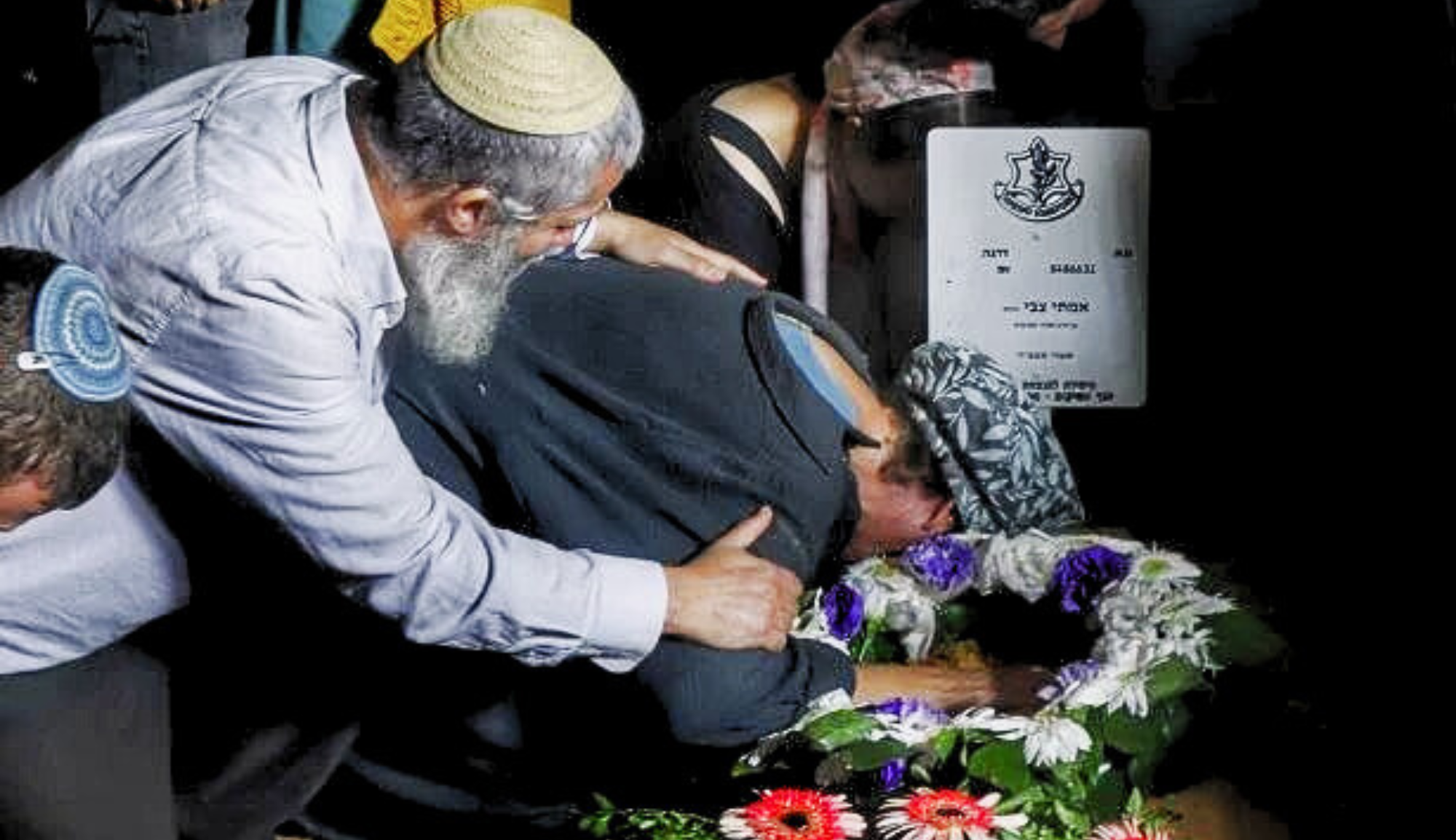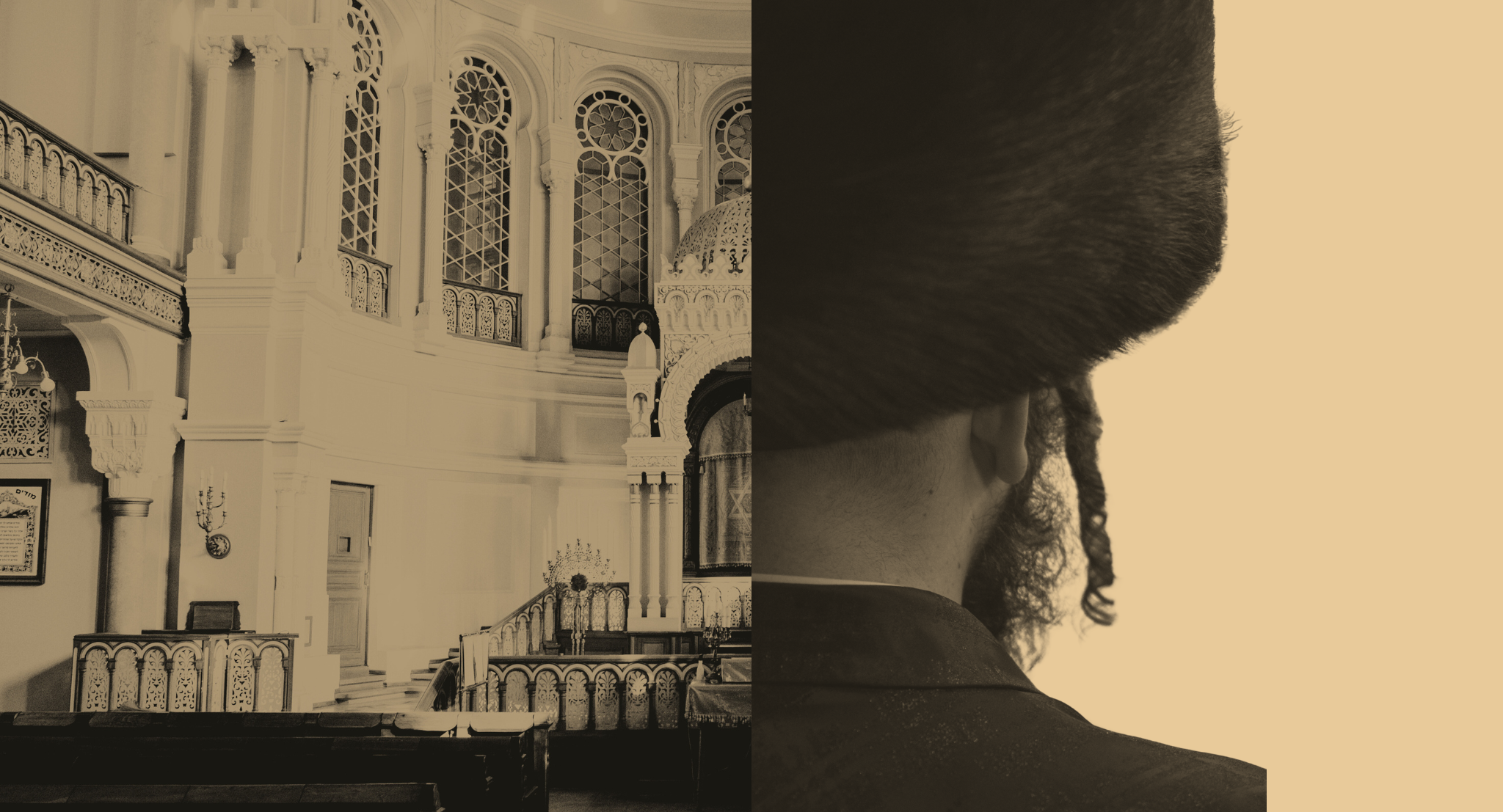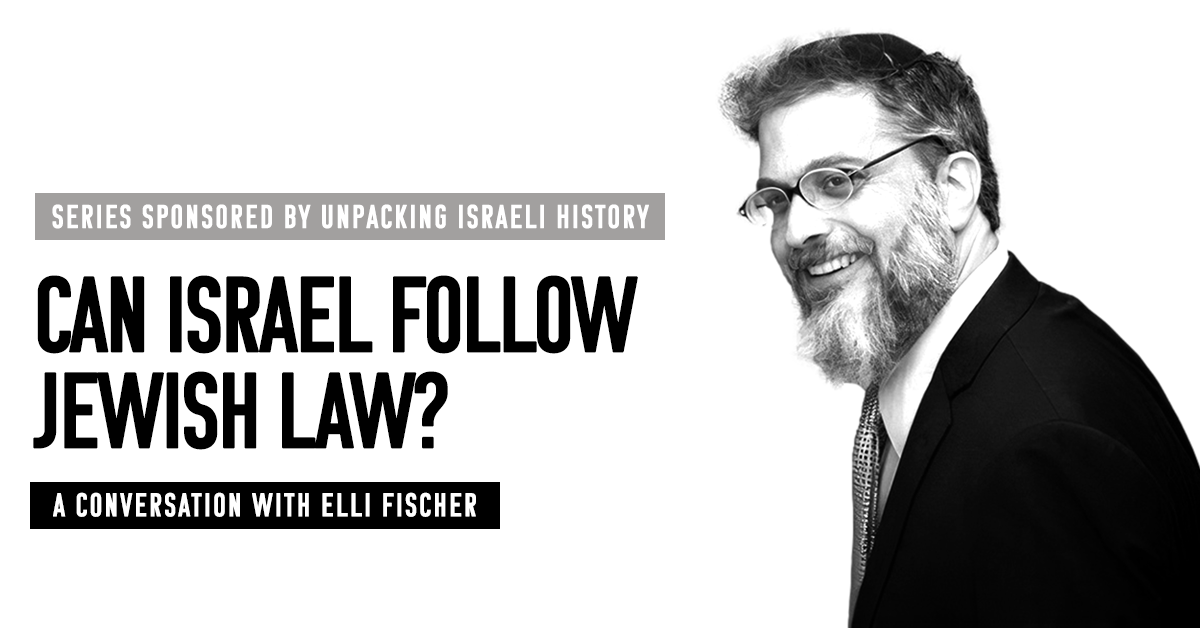
Summary
This series is sponsored by Unpacking Israeli History.
In this episode of the 18Forty Podcast, we talk to Rabbi Elli Fischer— a writer, translator, and editor—about the relationship between Jewish law and the Jewish state.
For almost 2,000 years, we were able to maintain a system of Jewish law without the convenience of a homeland. Yet now, when we have our own state, Jewish law seems more difficult and complicated to implement than ever.
In this episode we discuss:
- What is the effect of halacha on the Jewish state and the effect of the Jewish state on halacha?
- How can halacha and society be integrated in Israel?
- What is it about the nature of halacha that puts it outside the domain of the current systems of government?
Tune in to hear a conversation about the role of Jewish religion in the Israeli government.
Interview begins at 19:27.
R. Elli Fischer is an independent writer, translator, and rabbi. Previously, he was the OU-JLIC rabbi and campus educator at the University of Maryland. He holds BA and MS degrees from Yeshiva University, rabbinical ordination from Israel’s Chief Rabbinate, and is working toward a doctorate in Jewish History at Tel Aviv University. He is a founding editor of The Lehrhaus, a web magazine of contemporary Jewish thought. His original writing on religion and politics in Israel, the interplay between legal and nonlegal elements of the Talmud, Jewish religious culture, and Central European Jewish History have been widely published. He is the translator of By Faith Alone: The Story of R. Yehuda Amital and the editor of R. Eliezer Melamed’s Peninei Halakha series in English.
References:
Ezekiel
The Invention of Jewish Theocracy: The Struggle for Legal Authority in Modern Israel by Alexander Kaye
Halakha and the Challenge of Israeli Sovereignty by Asaf Yedidya
Isaiah
Sefer Lev ha-Ivri by Rabbi Akiva Joseph Schlesinger
“Ivri Anochi” by Benny Friedman
Rabbi Elli Fischer’s translation of Peninei Halakha
State of Halakha: Israel’s History in Jewish Law by Aviad Tabory
The Politics of Torah: The Jewish Political Tradition and the Founding of Agudat Israel by Alan L. Mittleman
Transcript
David Bashevkin:
Welcome to the 18Forty Podcast where each month we explore a different topic, balancing modern sensibilities with traditional sensitivities to give you new approaches to timeless Jewish ideas. I’m your host, David Bashevkin, and this month we’re exploring Zionism. Thank you so much to this series sponsor Unpacking Israeli History, the podcast that gives a fresh perspective on some of the most controversial and interesting events in the country’s history. Catch the current series now and don’t miss the special three part miniseries on the founding of the Jewish State. Listen to Unpacking Israeli History wherever you find podcasts or follow the link in the show notes. 1840 is part of a larger exploration of big juicy Jewish ideas, so be sure to check out our website, 18forty.org. That’s 1 8 F-O-R-T-Y .org where you can also find videos, articles, recommended readings, and weekly emails. When I was growing up, I think that I thought of Halakah, Jewish law, in kind of two lenses.
I think there was one lens that was very individual, let’s say the Laws of Shabbas or the Laws of Kosher. This is the way I need to act, this is the way I need to conduct myself. And then there was kind of a separate area, a separate track of my relationship to Jewish law, which was much more conceptual. When I would learn Talmud, let’s say I’m learning the tractate of sanhedrin and reading about how the courts would punish people and the level of testimony that you need and the way the court system worked. To me, again, this is what I was just growing up, I would always relate to it in a very abstract way. It was almost hard to imagine in a concrete way Halakah being integrated with society itself. And I think for most people that’s kind of their relationship. They have the things that relate to them on an individual level.
And then if you immerse yourself further in Jewish learning, whether it’s Talmud or anything else, there’s this more abstract conceptual universe that halakha constructs. Maybe it’s the universe that Rabbi Soloveichik describes in Halakahic man, but it’s more abstract than that because it’s not how you’re looking at the reality in front of you. It’s kind of how you’re imagining this past history, past society, conceptually, how does testimony work, how does different principles and agricultural culture, but not in a way that it would actually affect your individual life. And maybe that’s me and maybe I’m isolated in that. But I always had kind of these two tracks, the kind of the reality of everything. And then there was a separate track, which was much more conceptual. In a way it reminds me of a story that I heard once, I hope I’m quoting it correctly, from Tully Hark Stark of Tulley Hark Stark is the head of the school of SAR, which is a thoroughly co-ed, modern orthodox high school in Riverdale.
And I don’t know who he was speaking with. I think the way I heard the story, he was talking to somebody like myself who only went to single gender schools and was asking him like, how are you able to teach the parts of, let’s say, track take casubos, which talks about a woman losing her virginity in kind of very interesting ways and what the repercussions are, et cetera, et cetera. He’s like, how do you teach that in a co-ed environment? Isn’t it like so awkward and uncomfortable? And his response I thought was very profound. This was his approach. He said, how could you not teach it in a co-ed environment? How can you totally divorce the concepts of the Talmud from the reality and the people who it’s affecting the most? In this case, meaning women. And I’m not making an argument for co-ed or for single gender education, but I am using that story and that dialogue as a reflecting point of the way that we relate to Jewish learning itself.
Sometimes it is more comfortable and is more comforting and more easy to digest when we think of the concepts that we confront in the pages of Talmud in Jewish law and think of them more abstractly, more conceptually, rather than impacting the very communities, societies that we are a part of. It’s nice to think about in the abstract. It’s interesting for something to reach out and yearn for. It is something else entirely to really imagine society running in that way. And I think more than anything else, one of the foundational questions of the establishment of the state of Israel is this very question of how to imagine or dare I say reimagine Halakah not just as an individual way to live your life, but a way that can be integrated into society itself. Is there a way in which we could conceive of a country of an entire population of people who are both observant and not observant?
And in the modern day world, can we think of a way that a government can run according to the dictates of halakah? This is not my question. This is a foundational question that relates to the very establishment of the state of Israel. It poked its head out and reared its head out in terms of the reality of everything that’s been studied since the destruction of the beis hamikdash, the pages and pages of Talmud and commentaries and… And all kind of negotiating with concepts, many of which had no application in the contemporary world. I mean major areas in most additions of shulchan aruch, which is the primary source of law. If you open it up and you turn to the pages of the laws of conversion, you will still see a disclaimer on it that says, these are laws that do not have relevance nowadays. Why?
Because it was illegal to convert non-Jews to Judaism. So there were so many areas of law that was almost inconceivable to apply in a very practical sense, the reality of all of the Halakah. That doesn’t mean that people stopped learning it, it just meant that a lot of the response, a lot of the way in which rabbis, educators, leaders applied the applied law was missing. We didn’t really have that many cases that came to us until kind of the almost World War I dealing with contemporary conversion issues. Now, I’m not here to talk about conversion either, but when they established the state of Israel, when that reality was beginning to materialize, one of the most foundational questions was, can we operate a country and unite the longing of learning that we have accrued over the millennia and find a way to integrate this into the Jewish state?
Is there a way that these two universes can coalesce together? And this was a question that people both within kind of the rabbinic community and outside of the rabbinic community, in many ways it’s a cousin to a concern that was surfaced by Gersham Shalom, the famed professor of mysticism who wrote in a letter in 1926. His concern was not Jewish law, which I don’t believe he was at all observant. I’m still extraordinarily fascinated what his relationship was to Jewish law in his own personal life. And I’ve heard varying testimonies, but it doesn’t seem like it was much. But he wrote in a different letter in 1926 where he was concerned not from the application or the integration of Halakah in the state of Israel. He was concerned about using the Hebrew language. He writes, his father says, this country is a volcano. It harbors the language.
One speaks here of many matters that may make us fail. And he was writing at the time more than anything else we’re concerned today about the Arab, but much more sinister than the Arab problem is another threat. A threat which the Zionist enterprise unavoidably has had to face the actualization of Hebrew. What his concern was is that when you have a society that is using a biblical language, a mystical language, a prophetic language in their everyday life, it is going to change the very way in which society operates. When we start calling a tank a Mercova, when we start calling electricity chashmal, we are taking mystical prophetic words. chashmal and mercova, are words used in the vision of Yechezkel of Ezekiel, his mystical vision, which is known and studied by kabbalists as the Maaseh merkova. And we’re taking words from within that vision that are describing supernal mystical states, and we’re now applying them to kind of these very quotidian ordinary circumstances of society in front of us.
And maybe when we use those words incorrectly, it can bury a certain mystical volatility that can erupt and overturn what should be kind of an, in his eyes, a secular normally running state. And you’re going to have this bubbling up of this mystical messianic tension that pours through. Now whether or not Germsham Shalom’s concern was well-founded or actually came true. I absolutely think it is fascinating the way that we have repurposed kind of mystical words. One example is a luach like normally we think of the luchos, which is this indelible tablet that Moshe brought down from Sinai and a luach in contemporary Hebrews an erasable chalkboard. So all of these are different ways in which the prophetic and mystical prophetic biblical ideas, how they can sometimes create volatility in the contemporary modern world. When we try to integrate them. There is a second far more significant letter, which really features quite prominently in the discussion we’re about to have.
And that is the 1937 letter that the then chief Rabbi Rev Isaac Herzogg sent to the leading decider of Jewish law, Rav Chaim Ozer Grazinski. And he reached out to him seeing that the state of Israel was about to become a reality, and basically asked him, is there a way in which we can integrate Jewish law into a state? Is there a way to run a state according to Jewish law? And he asked some very basic questions in terms of the way criminal law works according to the Talmud and according to Jewish law, can we really run a state that way? There were major issues related to the rules of inheritance and the way that inheritance in Jewish law is strictly across gender line and the implications that come off in the rules of inheritance known as Yerusha. And he was concerned in a very committed way to Halakah, but wondering and trying to reach out, how do we figure out a way to integrate these 2000 years of Jewish law that we have developed and integrated it into this emerging state?
The concern was is that we’re going to be left with a state that is not going to be religious at all, that’s not going to have that Jewish character that we’ve nurtured and run our communities with over the last 2000 years. But obviously there are some major issues in running a government and a criminal justice system strictly according to the rules of the Talmud. And in a fascinating turn, rev Haim Ozer actually cautioned him and said, I don’t think you should try to do this. I don’t think this is going to work. And he pointed, which we’ll talk about to comments in the Drashos Haran, which was written by a medieval commentary known as a rishon of saying, you have to really rely not on kind of the letter of Halakha law, but kind of extra judicial judgment in the way that you’re going to run the government, but you’re not going to be able to integrate these two in running a functional state.
Rav Herzog was deeply disappointed by this response. He really wanted to fulfill the vision of having a Jewish state that could have integrated within it Jewish character, and he decided this isn’t going to be the person who’s going to be able to help me solve this problem. There were others who came about and thought of other ways that maybe we could make this integration more easily. There were attempts to re institute a Sanhedrin to actually bring together a Sanhedrin that would be able to radically reimagine what Jewish law is. Now, this actually leads to a second problem. The first problem we discussed is the way that the state is affected by either the presence or absence of Halakah. I think there’s an even much larger problem, and it’s this problem that is championed and really screamed by many anti-Zionists, but it’s a very real problem that we all need to contend with, which is not the effect of Halakah on the Jewish state, but really the effect of the Jewish state on Halakah and the confrontation with Halakah.
When we have some measure of autonomy over the Jewish state of how that can change Halakah, can we change Halakah? Halakah is a major and central issue that really affects whatever community or whatever your perspective is on the state of Israel. It definitely surfaces some very important philosophically troubling questions about the system of Halakah that we have developed over 2000 years. I think much of the pushback from people like the satmar rav and people who were anti-Zionist, but lovers of the Jewish people was the sense that if we really tried to do this, something is going to alter the very state of what it means to be Halakahic what it means to follow Halakah. And they were concerned that in our attempt to fashion a Halakah that can address all sectors of contemporary Israeli society, they were less concerned about what that will mean for the state of Israel.
And I think they were even more concerned. And in a sense, rightfully so, because we’re still stumbling on this question, what that’s going to do to the state of Halachic observance itself to what it means to even be Jewish and be engaged in Yiddishkite within the state of Israel. I think this is one of the most fascinating questions in all of Jewish life. It’s something that I never really addressed in a more philosophical angle. I’ve definitely, growing up, you have sessions in high school about what’s the Halakah in terms of things that come up in the Israeli army or things that come up related to Shmita. But that larger underlying question of what the very effort to integrate Halakah into contemporary Jewish life and what that tells us about Israel, what that tells us about our society and what that tells us about Halakah is something that I never gave much thought to, but it’s something that I’ve really been thinking about a lot.
There are really two books that I want to call out in this very introduction because I have found both of them so fascinating and they compliment one another. One book is written by somebody who I may call a friend. We interacted together many years ago in a fellowship run by the Shalom Hartman Institute. And that book is called The Invention of Jewish Theocracy, the Struggle for Legal Authority in Modern Israel, written by Alexander Kay. The main focus of the book is on these efforts by Rav Isaac Herzog to establish the state of Israel to run according to Halakah. It is an absolutely fascinating read. It is an easy read. It is not such a difficult read, and at the heart of it is the struggle, not so much for what Israel should look like, but what should Halakah look like? And there is a second book that I would also recommend.
It’s a lot more expensive, so I feel bad recommending it. I think it cost like a hundred dollars. Honestly, it was worth it. It was absolutely excellent. It compliments it. It goes into more depth and detail in ways that Alexander Kay’s book, the Invention of Jewish Theocraphy does not do. And that book is called Halakah and the challenge of Israeli Serenity by Assaf Yedidya. I know very little about him. He is the head of the department of history at Efrat College and a senior elector at REL University. Both of these books, the Invention of Jewish Theocracy and the second book Halakah and the Challenge of Israeli Serenity are both occupied by the same exact question, which is, how can we integrate society, Israel, and Halakah all together? What should the vision be? What should we be advocating for? And this is an extraordinarily important and pressing question, one that has divided in many ways, Jews who have very strong feelings about what the right way to do this is.
It’s a question I come back to over and over again as it relates to places of worship in the Kotel as it relates to shabbos observance laws throughout the state of Israel. I have mixed feelings, but I know this is a very holy question because it’s a question that is not a political question. It’s a question that is trying to build a bridge between the conceptual world of Halakah and the actual reality of society. And I think there’s something very holy about trying to imagine and create a closeness between Halakah and Jewish law and remain committed as hard as it is that there is a way, there should be a way, there must be a way that Halakah addresses how we should live, not just as individuals, not just how we should make cholent on shabbos, but how we should live as a society. And I think even for people who live outside of Israel, it’s an important question.
What does Halakah ask of us as a society nowadays? I just shared on Twitter because I just gave a class on materialism in my Jewish public policy class, and I was thinking back and I shared the guidelines that used to be shared in the Jewish observer. They were written by the Agudah. They were guidelines for how to run a simcha, what type of weddings you should have. And they have these very specific guidelines, and it was printed in every issue of the Jewish observer. Now, I don’t know that I’m an advocate for such guidelines. I definitely know that that effort has failed. Why it failed is something we can talk about a different time. But I think there’s like an underlying reaction when you see guidelines for how we should operate as a society. It does feel foreign like, Hey, who are you to be telling me like, wait a second, what, you have a right to tell me how I should be living my life?
And in a way, if you begin to think about Halakah not just as kind of an individual practice, but as something that is meant to transform and uplift society in the holiest ways, we should ask ourselves why we bristle. Not at the specific guidelines or any specific effort, but why I think many of us, I for sure bristle at very efforts for when we are being told what to do.
Is it because of our lack of faith in the people telling us? Is it because we don’t think that we are there yet? We don’t think we ourselves are ready yet? Or is it a lack of emunah in our faith, in Halakah itself that this is really something that can inform and uplift society? And I think dealing with that discomfort, dealing with that question and that reaction that we all instinctively have in different ways to different things that happen, whether it’s in the state of Israel or rabbis a Halakah telling you how to live your life societally outside of Israel, I think it is an important question that we think about and hopefully together figure out a way to build a bridge where Halakha is able not just to lift us individually and as families, but to uplift communities and ultimately to uplift society and the world.
And that is why I am so excited to have a conversation with someone who I know this has occupied so much of his thought. Rabbi Ellie Fisher is just… He’s one of a kind person I think on Twitter. His handle is ADHD Rabbi, and you’ll hear a little bit of that in the conversation. He’s extraordinarily thoughtful and has relationships with leaders of Halakah really within the charedi world, within the Dati Leumi religious Zionist world. And I think he has the sensitivity and thought for whatever world you live in. I think that part of our conversation was so fascinating of what’s really underlying this effort, which is why I am so excited to share with you our conversation today with Rabbi Ellie Fisher. Thank you so much for joining. I really do appreciate it. I feel like most of our podcast relationship is via a voice notes and WhatsApp messages, so it really is a pleasure to talk to you about a topic that is both extraordinarily timely and extraordinarily old.
And what I want to talk about is attempts to integrate Jewish law into the state of Israel. And I’m trying to figure out where the right place to start is. And perhaps you can tell us a little bit about when the state of Israel was first established, before it was established. It was 1925, rav Herzog, who was the chief rabbi at the time, sent a letter to Rav Chaim Ozer, who was the recognized leader of Jewish law. He was known as the posek of all of the Jewish people.
And he sent a letter, how can we establish the state of Israel and integrate Jewish law? And Rav Chaim Ozer responded to him and said, this is a fool’s errand. This is not the way to do it. It’s not going to work. And instead, you should try to use some other mechanism to preserve the Jewish character and the character of Jewish law within the state of Israel. Where does the story of integrating Jewish law in the state of Israel begin for you? For me, I start with that letter, where is your starting point? One of the first attempts to really create a state that is run with Jewish law. Where do you think that begins?
Elli Fischer:
I think that it begins in Jewish memory, in Jewish consciousness, in Jewish expectation. Starting I would even say with Sefer Yeshayahu, when Yeshayahu talks about that there will be some sort of restoration of a uniquely Jewish governance, and it harks back to something kivarishona, kivatchila this is how things were. We’re going to have judges like we used to, we’re going to have council like we used to. Tzion will be redeemed through law, which we understand to mean Halakah.
David Bashevkin:
And let me just mention because it’s important. That was kind of canonized in our daily prayer.
Elli Fischer:
That’s right. It’s paraphrased in the daily Shemoneh Esrei, and that’s what it’s about.
David Bashevkin:
The return of Jewish law to some memory of a state of a Jewish homeland that is run based on the unique governance of the Torah.
Elli Fischer:
And open up a Rosh Hashana Yom Kippur Machzir, and you’ll see we’re governing for theocracy. There’s no other way to describe it.
David Bashevkin:
We’re praying for a theocracy.
Elli Fischer:
We’re davening for theocracy. We’re asking God, we want you to rule us God. We want you to rule us.
David Bashevkin:
You should be the only unique ruler of our people. There’s no getting around it.
Elli Fischer:
We’re davening for theocracy.
David Bashevkin:
It’s interesting what you think about during davening and what you think about hashiva shofteinu kivarishona is one of the most ambiguous prayers that we have. It’s not so ambiguous, but it’s the one that I think people fill in with their own thoughts. They’re not really thinking, oh, I would love to live under a theocratic government. I think most people, when they close their eyes and they’re praying for that, they’re looking for justice in the world, they’re looking for, maybe they would personalize it their own self-discipline, a time in their own life when they were disciplined. An idea that I once heard from Moshe Benovitz and they personalize it. A lot begins to change when the actual pragmatic idea of a state begins to emerge. And we’re basically called to task from this national consciousness of you’ve been praying for it, now it’s time to build it.
Why wasn’t it an easy layup to just say, oh, we’re building a Jewish government. Shouldn’t it be obvious? And obviously I’m playing devil’s advocate. Let’s build a state that is based on the law that we’ve been preserving for 2000 years. It’s a cruel irony that many early scholars point out that we had an easier time preserving the law without a state, without autonomy than we do with autonomy and with a state. So what was the founding difficulty of, we start talking about nationalism in the 1800s. We start thinking about a national return to the homeland. There are obviously earlier efforts, but when does the rubber hit the road that our prayers for 2000 years when we finally have some sliver of agency to realize it, where the Jewish people almost look in the mirror and say, wait a second, this might not be as easy as we thought it was.
Elli Fischer:
Yeah. So there are a few things that are going on there. So one is, and I think this is what Rav Herzog felt most acutely, but he’s not the only one that felt this, is that, okay, we’re setting up our own sovereignty. But today there are international bodies like the League of Nations originally, or then the United Nations, that in order to be part of that international community, there has to be a certain legal baseline that you share with everybody else. So the idea that we’re going to set up a situation where, let’s say certain people have more privileges of citizenship than others.
David Bashevkin:
Jews Versus non-Jews.
Elli Fischer:
Jews versus non-Jews. Men versus women, right? It’s like, oh yeah, our court system, by the way, women can’t testify, and you’re just going to translate Halakha into that reality. It wouldn’t work on an international scale. That’s the problem that let’s say Rav Herzog would’ve had. And his idea was to make certain takanos that like every beis din accepts, ados, accepts the testimony of women, accepts the testimony of non-Jews, you know, you can argue whether or not this was something that he saw as lchatchila or bidieved right. Is this the ideal, this is how it should be, or is it something like, no, this is something that in the future we’ll be able to rethink these things and we’ll go back to the realtor law. But for now, we have to make these concessions to reality.
I think Rev Herzo probably thought that this was ideal, that halevei we wouldn’t go back to a situation where, yes, if every beis dinaccepts that women can testify on civil cases, on monetary cases, on even criminal cases, then great. And the Halachic disqualification of women from testifying would be relegated to certain ceremonial things. Like even I think the conservative movement to this day, or maybe now they’ve changed it, for a long time, the conservative movement, they couldn’t figure out a way that ados kedushin still had to be men, right? It’s a ceremonial thing. I don’t want to try to mansplain it because I can’t, but it’s an inequality that exists.
David Bashevkin:
Well, I don’t want you to mansplain it. What I want to touch upon, and I want to hear the different approaches for how people did it, but I think what troubled Rav Herzog so much, and I’m going to speak for myself now, not for Rav Herzog, is that aside from the pragmatic difficulty of running a state based on the Halakahic traditions that we preserved for 2000 years and developed, aside from the crisis that it engenders, if we can’t do it about how we view the state of Israel, I think there is a second more serious crisis that we almost never discuss and never talk about.
What it makes us think of Halakah itself, meaning the inequalities that have been preserved. There’s an uncomfortable feeling when you’re given the opportunity to integrate it into a state. And it seems so unmanageable even by some of the greatest Jewish leaders and Halakah, leaders at the time. I’ll be honest. For me, it makes me uneasy of that ethical dimension of the Halakah that we’ve been preserving. Is this something that only can exist in our memory when we’re given the actual opportunity, we’re not able to have the confidence to say, yes, we can run a country like this, we can run a society like this. Do you hear what I’m saying?
Elli Fischer:
You’re asking a great question, David. If I have to answer it in a word, I would say, yes, Halakah is capable of running a society completely. No, it’s not capable of doing it now, and let me explain to you what I mean by that. First, let’s highlight several features of how the Halakahic system works and has worked for the last 1500 years. So number one, Halakah has developed locally. You have Ashkenazi, you have sefard , you have chassidim, misnagdim, you have all different kinds of subgroups without any central authority and with limited power of enforcement and whatever minor enforcement you-
Elli Fischer:
…and with limited power of enforcement. And, whatever minor enforcement you have, whatever limited enforcement you have, is on the local level, maybe in certain cases on the regional level, certainly not on the level of the entire Jewish people. So, to shift from that to a centralized Halakha that’s going to be governing a state in the way that we understand a state to function today, is a big leap.
Number two, Halakha develops from the ground up, it develops through consensus. Rav Moshe Feinstein said this very memorably in an interview in The New York Times in the 1970s, “Halakha doesn’t develop by fiat from some sort of top down decision, it develops by consensus. It develops by, let’s say, collectively, Rabbis deciding they’re going to ask a particular rabbi, and they’re not all going to decide on the same Rabbi. In the same generation, you have Rav Yitshak Schmelkes and the Maharsham, and they’re not far from each other, and they’re both major poskim, right?
And things develop in different ways, but the way that it develops is through consensus, through persuasion. There’s no fixed hierarchy of who decides the law. There’s no fixed court of appeals. Nobody is telling you the individual that you have to ask a rabbi about a certain thing, and nobody is telling your rabbi that they have to ask a bigger rabbi. It’s all based on these individual decisions. Even when you talk about something that is consensus like shulchan aruch didn’t become consensus overnight. Shulchan Aruch was written, there’s a reception history, and that reception history includes the Rama having his say. And it didn’t really take off until the Rama added his glosses, added his things, which made the Halakha more pluralistic, which made the Halakha like, okay, this book now is good for Ashkenaz and sefard, which are very different practices than all four sections in Shulchan Aruch in all sections of Jewish law.
Number three is exactly that sort of pluralism, but I don’t just mean that multiple truths like a philosophical pluralism, I mean a pluralism in the sense that different rabbis, different regions, different communities have different halacha hosts, and even within the same system, and by the way, those can coexist in the same geographical. Once you have two communities in a city, you have two different systems of Halakha functioning within that city. And there’s also an internal pluralism even within a community. By that I’m talking about something that we’ve already spoken about lchatchila and bidieved, that it might be forbidden to do something, but once it’s done, it’s acceptable. Or you have something like, somebody who’s a particularly spiritual person, somebody who’s a particularly meticulous person, should not do something like this or something is muttar bshaeh hadchak, right?
They’re under extenuating circumstances, under pressing circumstances, something becomes permitted. And that works when you have, let’s say an internal private system where the rabbi that you’re asking will be able to see the individual situation and decide, okay, this is a shaeh hadchak and therefore I’m going to permit.
But on a larger scale, on a national scale, how is that going to be? You’re going to have a special bureau for deciding what’s considered shaas Hadchak or who’s considered a baal nefesh that has to be more stringent. A fourth element of the Halakhic system is that Halakhic includes a much wider range of practice. The classic example would be the order in which you tie your shoes, the order in which you wash your body when you take a shower, your personal private behavior matters as a question of avodas Hashem as a question of religion, as a question of your relationship with God. But these things, these personal, private observances are almost impossible to enforce. So take the chametz law for example, and this has gotten a lot of press, right? Israel passed a law that it’s forbidden to bring chametz into a public place like a hospital even. And they’re checking bags for chametz first of all.
So we’re going to leave aside the question of like, okay, you’re not really accomplishing anything in terms of what people do in their own homes, but let’s say there’s a valid to having public observance of pesach in that way. The Gemara in Psachim discusses a case where somebody reaches into their own personal bread box and they take something out, and the person who pulls it out, it’s his own house, and he doesn’t know whether this is chametz or not. So this person, you can’t look at something and say, oh, this is chametz this is not chametz. So somebody could bring, I don’t know, a laffa into the hospital and the guard says, well, this is chametz. And the person says, no, no, I baked this on my Tabun in my little home oven, and it’s not chametz. Who’s going to adjudicate? Who’s going to say like, oh, no, this is chametz.
This is not chametz. So you can’t tell by looking at something whether or not it’s chametz, the whole thing doesn’t get off the ground. So how can you have any sort of enforcement mechanism? How can you make a law that any way can be enforced publicly? You expect the security guards are going to train the security guards to know the difference, what chametz looks like and what non chametz looks like. So I want to make something clear. I’m not saying that Halakha can’t govern a system, and I started with that. I don’t think that Halakha is incapable of governance. There can be a polity that’s governed by Halakha. What I’m saying is that for the past 1500 years, since the time of the mission, Halakha has developed in a certain way, in the way that I described.
At the same time, we have certain expectations of how government functions, about how law works, about how regulation works, about how bureaucracy works, those ideas, those modern forms of governance that we expect are incompatible with Halakha as it is today.
Now, I think that Halakha is going to continue to develop as it has, and I think that systems of government, there’s nothing that says that the modern regulatory systems of government are going to continue to develop in the way that they have. And so both systems will continue to develop and one day bmheira byameinu, they’ll converge. The issue is that right now today, there’s a gap, and I’m content to take a patient approach. I’m content to say this thing might take time, this might even take hundreds of years.
It took 1500 years to get to where we are. It’ll make maybe another 1500 years to get to where Halakha is in position to govern a society. However, there are those who will seem more impatient. They want to take an approach, they want to force the issue. They want to shoehorn into modern conceptions of law. And to be honest, in a lot of ways that scares me because I think that there’s a very strong chance that they will end up distorting the Halakha. But on a more fundamental level, I’m not even sure what they want. Do they want a shoe tying police? Is that what they’re after really?
David Bashevkin:
I think part of what animated people’s concerns about Zionism was that because that was realizable and they were hoping for it, they were concerned that if we establish a state of Israel that is not fully governed by every detail on minutiae of Jewish law, it will in effect change the very relationship of Jewish law to the Jewish people. If we allow a Jewish state to be what mediates Jewish identity rather than every detail and minutiae of Jewish law. I don’t know that the Satmar Rebbe said this explicitly, but I think this was a concern that animated a lot of people’s anti Zionism where if the project of integrating Jewish law, that is not what mediates Jewish identity, and instead it is a nationalistic homeland, we can only abide by what mediates Jewish life to be the details that you’re talking about. And I think they do hope, if you were to ask them, what are you hoping for? If you ask the Satmar Rabbe of what are you hoping for?
When you pray hashiva shofteinu kivarishona, we should have rulers like Days of Yore, my guess is that they do want the shoe tying police, tell me if I’m incorrect. I don’t think it’s so preposterous. They would want a government that really reflects the will of God as expressed through Halakha.
Elli Fischer:
Yeah, I think you can see that a little bit in before Zionism, the arrangement, the organization of the Jewish communities in Eretz Yisrael, they were arranged in a set of communities called Kollel. Right? And it’s not like the Kollel that you have today. Kollel as in community, comprehensive. Like Kollel overall, and they were voluntary on one hand, but on the other hand, they had very strict rules about how you could dress and how you lived and what you could eat and things like that. And they all relied on fundraising networks. Some of them are still around. And there were these small societies, somewhat self-governing that had political status vis-a-vis the Ottomans and later the British. And even vis-a-vis the state of Israel, we know that there are certain batei din, rabbinical courts, that are “grandfathered in” of having an autonomous status, that they’re allowed to do certain things.
They have certain powers that’s inherited from these kollels, right? Each kollel had its own beis din. So I think that that could be an indication of what they wanted. But at the same time, you’re talking about something which is a much, much smaller phenomenon. Each one was maybe a few hundred families.
David Bashevkin:
If you go into Meah Shearim now, and I don’t know if that’s a throwback, but there are signs, I’m sensitive to them where it’s like, look, we’ve been having communities here uninterrupted that preexist the state of Israel that abide by certain levels of modesty and certain levels of dress. And there are signs telling people to dress and congregate in certain ways. I don’t know if people abide by them. I don’t know if people always ask nicely to do it. But that is a throwback to ensure that what mediates Jewish identity is not the laws of the state of Israel, but are the laws of Halakha Jewish law that we’ve been preserving in our communities that predate any state.
Elli Fischer:
I’m in a complete agreement with you on that.
David Bashevkin:
Yeah, exactly.
Elli Fischer:
And I think that those communities, they are small scale, and next time you’re in Israel, we can go to one of those communities on a Thursday night and grab some cholent and talk about this further. That’s where you go for Thursday night cholent.
David Bashevkin:
That’s where you go for cholent. Yes.
Elli Fischer:
So some of the first ideas about a Jewish political entity in the state of Israel were from these, what we would today call chareidim that came to Israel before the so-called first Aliyah. The first Aliyah was not the first Aliyah. Calling it the first Aliyah in 1881 was literally Zionist propaganda. They wanted to say that this is the beginning of something. It wasn’t. It was a continuation of things. There were Jews making Aliyah throughout from the late 1700s on into the beginning of the 1800s. So one of the people that made Aliyah in the 1860s was a man by the name of Rabbi Akiva Yosef Schlesinger. His father was a talmid of the Chassam Sofer. He, actually, before Herzl wrote a book envisioning what this Jewish polity would look like. He wanted to create this political system and he envisioned masses of Jews. And yeah, it was pretty darn frum.
David Bashevkin:
What was the name of the book and could you tell me more of the vision that he had at 1860, Akiva Schlesinger?
Elli Fischer:
Lev haivri is an earlier work, which was a bestseller. That is his work of Jewish counterculture. Basically the scholar, Michael Silver, who’s a wonderful scholar and also a world-class shmoozer. He argues that Akiva Yosef Schlesinger is at the same time, he’s almost like he’s a pro-Zionist and also a pro chareidi. And I love talking about him because he just explodes every myth that everybody has about “If you’re this, then you can’t be that. And if you’re that, then you can’t be this.” He’s a full-blown Jewish nationalist, but he becomes a full-blown Jewish nationalist and a reaction to Jews getting involved in Hungarian nationalism in the late 1840s. Jews are all like, yeah, we’re Hungarian nationalist. And he sees that as a betrayal. He sees saying the thing that you belong to any nation other than the Jewish people as a betrayal. So any Jew that says, yes, I am a German patriot. I’m a German citizen, and I also happen to be Jew by religion. He looks at the passuk, which is where he gets the title from his book, Ivri Anochi Ves Hashem Elokei Hashamayim Ani Yored.
So before it was a song by, I don’t remember…
David Bashevkin:
Benny Friedman.
Elli Fischer:
Thank you. Before It was a song by Benny Friedman. He’s saying, ivri anochi like, I have a tribe. I have a nation. And that is, I’m a Hebrew. ves olekei hashamayim. Right? When you’re talking about God talking about religion, that’s something that comes later. My core identity is I’m Jewish, and he was a very firm guy, but he saw being Jewish, Jewish nationalism, as you would call it, as being prior to the Jewish religion, which is a really, it’s a wild thing and it’s a radical thing. And not only that, but he reads that into the Chasam Sofer.
David Bashevkin:
Why is that so radical? The notion of Jewish nationalism coming before the Jewish religion? Were we always that sense of peoplehood, maybe I’m misunderstanding what you mean by nationalism, is the idea of Jewish nationalism, was that a radical idea in the 1800s?
Elli Fischer:
Well, nationalism is an idea that really takes shape in the 1800s, right? The idea that who you are, the language you speak, the clothes you wear, the foods you eat, right, makes you a part of this group. And that group collectively has certain rights and a certain sort of extrinsic existence, something that’s bigger than the person. That way of thinking about the world really came of age in the 1800s. And yeah, there are Jewish sources. One of the sources that many Jewish thinkers, especially at the beginning of the Aguda went back to Rav Saadya Gaon has a line where he says, Ein anu uma ela bizman torah. I may have that off a little bit. Think that the Jewish people, our nationhood, our peoplehood is predicated entirely on the Torah, which I would say is it’s a more American thing. What makes you an American? You abide by the American constitution.
You don’t have Americans, like you have Hungary. Well, maybe there’s some people that think that you do, but America is not an ethno national state. There is no ethnic group of Americans. America is a poly block state. Other countries like, I don’t know, Slovakia and Estonia and Hungary, they’re predicated on a certain ethnic existence. And so when you come to the state of Israel, and we’re going to build a Jewish state, so okay, are we going to look at this through the lens of we’re an ethnic state just like Hungary and Estonia, in which case, what’s going to constitute us? It’s going to be constituted by the Jewish people who defines what’s a Jewish person, who are the Jews. Yeah, we’re going to have to work that out. We’re going to have to have an immigration policy or whatever.
But it’s very much not coming from a place where Rav Saadya Gaon is coming from and where early Aguda was coming from, which was we belong to the Jewish people by virtue of the fact that the Torah is our constitution, right? The Torah is our system of law. If you accept that system of law, great. Come on over. If not, no, sorry.
David Bashevkin:
The way I understand it now, we almost have two extremes in the vision for the state. We have one vision, and there’s obviously a whole lot in the middle. There’s one vision that the way to establish a state of Israel is to do it, and it should be mediated through Jewish law. The laws of this state should be informed and mediated by Jewish law as preserved and developed over 2000 years. I would put Rebbe Herzog in that camp. I would put the later Chief Rabbi Goren in that camp. There is a way to integrate the two. On the other extreme, which actually has an interesting bedfellows. I would probably put Herzl, I would probably also put the Satmar Rebbe of who felt we cannot have a state that is mediated by Jewish law for different reasons. Herzl felt that Jewish law would stagnate the development of a state.
It would stifle the development. It could maybe inform us culturally, but he says we should have the rabbis confine them to the temples, like soldiers confined to the barracks. Otherwise, the state will never flourish.
And I think on the opposite end of that same point on the spectrum was the Satmar Rebbe of who is basically saying, because it is not fully possible, we cannot have a Jewish state because in that sense, we’re going to have something else that’s mediating Jewish identity aside from Halakah. On the other extreme is just how Halakha and the state cannot be integrated for two very different reasons. And then you have all these attempts in the middle, and that’s really where we continue to live now. We’re all trying to have our cake and eat it too. We realize that we can’t fully integrate Halakha into the state of Israel, yet we realize that we don’t want to fully divorce Jewish ideas at Halakha from the state of Israel.
So maybe we could fast-forward, we started with this letter from Rebbe Herzog in 1925. Almost the next stop in history I want to comment on is the actual establishment and maybe this idea of compromise of where the rabbis are going to be given agency for Halakha and where they are not. And what ideas did Ben-Gurion have in the very founding of the state of Israel, he realizes that he’s going to have to reach out to the larger global Jewish community to figure out some basic Halakha questions. So what was the next step? We now have a state of Israel. What did we need to figure out and what did we figure out?
Elli Fischer:
So the first thing I agree with you that what we would call the religious Zionist community, they’re the ones that actually experience the dissonance here. For people that aren’t Zionists or who don’t really believe in the messianic dimension of the state of Israel. And I think that there are plenty of people who live in Israel who don’t believe in its messianic dimension. Okay? So it has laws and just same way that I keep the laws in America. I keep the laws in Israel. I’m not going to speed there. I’m not going to speed here. I’m not going to cheat on my taxes there. I’m not going to cheat on my taxes here. There’s almost like a civic approach to the state of Israel. And yeah, it’s a wonderful opportunity that we have to live here, to live in Israel. But the government itself, the state itself, I don’t see that as any sort of stepping stone. Somebody might say…
David Bashevkin:
I was probably raised in that universe and in that home. And the question that made me think about it differently and almost challenge, because the word messianic always scares people off. It’s a scary word. You know what I think about? We’re a generation who grew up, all of us, almost without exception now, we grew up with the state of Israel, and it’s very easy to take it for granted.
Elli Fischer:
Not only that we grew up into Yerushalayim, we grew up with the Kotel.
David Bashevkin:
With all of this, we didn’t grow up with that longing. And the thought experiment that has me reconsider the value of the state of Israel is thinking for a moment. And somebody presented this thought experiment in Tradition Magazine and it caused an uproar. But if you could imagine the Jewish state being annihilated and imagine being annihilated without God forbid, bloodshed and without even a mass exodus, but the government is no longer a Jewish government. It’s another middle. It’s a Arabic government, it’s an Egyptian government, and they let the Jew stay there. Whatever it is, maybe some rights change, some rights don’t. Would the day where we lost Jewish serenity have any significance in people’s eyes? Would that feel comparable to a tisha baav maybe let’s say we were even, we lost access to holy sights, or even people were kicked out without bloodshed and murder even. I don’t know. For me, it would hold great significance. It’s hard to appreciate what you have when you have it. And I oftentimes reflect on what would my reaction be if we lost it.
Elli Fischer:
I think it’s important for us to think about this. Every Yom Haatzmaut. So first of all, I think that having the attitude of we cannot possibly lose Eretz Israel, this is exactly the kind of thing that Vayikra warns us about, that Devarim warns us about, that Yirmiyahu warns us about. You have to deserve this land. Once you think, I don’t have to live up to this land, there’s no moral or religious imperative that guides you like the Baalei Hatosfos right? The Baalei Tosfos is the greatest sages of the 1100s and 1200s in Europe. They were scared to make Aliyah. They were like, I don’t know the special laws of Eretz Yisrael well enough to make Aliyah. I don’t know how to take terumos and meisros I don’t know what we’re supposed to do on Shmita. I’m not making Aliyah because I’m afraid. I’m more afraid to sin there in the palace, in God’s house than I am to sin over here by the banks of the Rhine River. That consciousness, I think is really important.
I think that when we lose that consciousness, when we start to take Eretz Yisrael, and we did not get Israel for granted, I think we’re in a bad place. That’s point A. And point B is this will take us far afield. But I think the entire story about Rabbi Shimon Bar Yochei and the stories that take place in that generation after the Fall of Bar Kochba, they all are dealing with this kind of question. I think. I mean, it’s a radical read. Everybody knows the sugya at the end of Berakhot on Poskim Bchvod Hachsanya.
David Bashevkin:
Not everybody knows in our audience.
Elli Fischer:
Okay? It’s a well known thing that there was some sort of convention. The Babylonian Talmud puts it at Yavneh which is itself historically problematic, and it has everybody, one after the other gets up to speak and all they say Poskim Bchvod Hachsanya, we’re going to start by giving honor to the host. And if you compare the version that appears in the Bavli with the version that appears in Shir Hashirim Raba, I think it’s pretty clear that the Bavli sees the achsanya as the Roman Empire, meaning we have to deal with the situation here where the achsanya, the host, the host society, the host culture, the host civilization, we’re guests now. We’re here, we’re in Eretz Yisrael. We’re in Yavneh, but we have to come to grips with the fact that we are guests here. I’ve written something about it. It hasn’t been published. I’m going to write more about it.
I think that’s part of what the Bavli is trying to do there. The Gemara recognizes that at that moment in history, after the Fall of Betar, where they do a whole bunch of takanos, they add the Fourth bracha of bentching. And if you compare the first three brachas of birkat hamazon to the fourth one, there’s this really, really strange and abrupt shift. And it’s almost like you’re dealing with a completely new reality. You’re not talking about God giving us the land and building Jerusalem. Now you’re talking about the little things that God does, the little things that God does when we’re in exile, like influencing the rulers to do this, and the minor miracle of after a debacle.
David Bashevkin:
The bodies don’t spoil.
Elli Fischer:
The bodies don’t. Yeah.
David Bashevkin:
Decompose.
Elli Fischer:
Right. It’s very different. It’s almost like you throw a mental switch in the middle of benching.
David Bashevkin:
And we’re grappling with that notion. And I think to this day, are we the guest or are we the host? And there’s a responsibility to come into the host, but let’s return to that next seminal moment, which are the compromises that were made between these two extremes. We have one extreme Halakha Jewish law cannot be integrated in this emerging project known as the Jewish state. And we have on the other extreme, this hope Hashiva Shofteinu Kevarishona return our judges, as of old, we are still fighting for a state that can be really integrated with Halakha.
I just want to note what’s so interesting is that the people who fought most and thought it was most realizable for Halakha, for Jewish law to be integrated into the state were oftentimes the most Halakhally progressive, as opposed to the ones who abandoned this project or said don’t bother, or said this could be dangerous. Were usually the most Halakhally conservative or the most serious and strict, which if you think about it for a moment, actually makes sense. If you look at Halakha with a little bit of flexibility and malleability says, this is realizable, we can do this. On the flip side, if it has a rigidity, a very deeply conservative quality, it’s almost like abandoned ship. There’s no way that we’ll be able to do this completely. But take me to that next stage. Ben-Gurion, we have a state what now?
Elli Fischer:
So I want to talk about two moments. One of them involves from Herzog and one of them doesn’t. The one that doesn’t, we’ll start with that one, is the status quo agreement between Ben-Gurion and officials at the head of the Aguda, which was the political organization of Orthodox Jewry. When you would today call Chareidi Jewry.
David Bashevkin:
Who was leading the Agudas Israel at that point? Any names that we should be familiar with?
Elli Fischer:
Moreinu Rosenheim was still the head. You had a few different—here in Israel, it was, I think Rav Itcher Meyer Levin, I can’t remember who it was addressed to. I think those were two of the people who it was addressed to, but they had a list of demands. This was 1947. The UN is coming, the English and the Americans are coming on a fact-finding mission to Palestine to see if partition is a feasible outcome. And Ben-Gurion wants there to be Jewish unity. He wants all the Jews to be on the same page about this. And so he calls in the chareidim and he says, “All right, what do you guys need? How can I make it so that you’ll support statehood?”
And they gave him a list of four things. Three of the four things were not coercive at all, right? They made very few demands on anybody else. One was they wanted autonomy and education. Number two was they wanted kosher food to be available at all public government institutions. Three is they wanted shabbos to be the National Day of rest, meaning they didn’t want there to be shabbos. But the same way that Sunday is the day of rest in America. And what that means differs from county to county and from state to state. Whether you could buy alcohol is…
David Bashevkin:
Blue laws.
Elli Fischer:
Yes, banks are closed, banks are closed everywhere on Sunday in America, banks will be closed in Israel on shabbos. And the fourth one was they wanted no civil marriage. All marriage and divorce of Jews is kdas moshe v Israel is according to the Jewish religion. Those were the four. And that fourth one is the only one that made demands on people outside of their circles. They didn’t demand that everybody keep kosher.
David Bashevkin:
The first three sound pretty realizable.
Elli Fischer:
They have been realized, and then some. Right? Now, the interesting thing is that a very similar list of demands was given to the Czar in the first decade of the 20th century. The Czar after the 1905 revolution. And there was like, it’s a famous thing. This famous get together, the Czar called in all of the big Rabbanim, Rav Chaim was there. Chaim Ozer was there. The Gerrer Rebbe was there though, The Lubavitcher Rewbbe was there, and they all go to St. Petersburg. They had gotten together in Vilna beforehand to make their list, to make their to-do list. What do we want from the Czar? And they get there and they give the Czar a list. And it’s the same things on the list. So first of all, it’s interesting that the Chareidim are the Chareidim, and this is before the Aguda is established, but the heads of Aguda see themselves is inhabiting the same role as the Rabbanim who went to meet with the Czar’s people.
Now, we’re asking on behalf of Klal Yisroel, well, this is what we want. And it’s interesting that you see Ben-Gurion inhabiting the same role as the Czar or the Czar’s culture minister. That’s more fascinating. But the point is Aguda is saying like, listen, we don’t want to make such huge demands of it. We want to basically be left alone. We want to be able to live our lives as we want to live our lives. We want a certain baseline. It’s like there’s going to be kosher food available. We want to be able to educate our kids the way that we want to educate our kids.
David Bashevkin:
It’s like what you would tell your non-religious uncle or something. We’re not looking to pick fights. I’m not asking you to change the way you are living, but we just want to be able to continue the way that we live.
Elli Fischer:
And by the way, in Europe and certainly in the Sephardic lands, the vast majority of Jews, even if they weren’t personally observant when they got married, they got married kidash moshe v Israel, they got married by a rabbi. The same way that there are plenty of people who aren’t particularly religious Christians or Muslims who will get married with a priest during Imam, that’s what Jews did. Non-religious Jews, Ben-Gurion himself, got civilly married. But most Jews in Europe, even if they weren’t particularly observant and they weren’t particularly religious. When you got married, it was with the rabbis. And so it wasn’t a huge ask. Even that wasn’t a huge ask at the time. There were people that opposed it, but it was certainly within the realm of feasibility. And here’s the big secret. It actually helped Ben-Gurion’s game plan. Ben-Gurion, part of his goal was he wanted to create a new identity of the Israeli Jew.
And that being Jewish and being Israeli would be almost synonymous. And to do that, he had to do a bunch of different things. He had to sort of break up all of the different communities that he didn’t want people to have allegiance to their old communities. He wanted people to have allegiance to the state of Israel. The state of Israel is your new community. The fancy Hebrew word for this is mamlachtiyut, right? He wanted the individual Jew to have his relationship, not with any sort of local community, whether it’s a Galician identity or Litvish identity, or Chassidish or Sephardic, it’s all coming through this great umbrella called the State of Israel. And he, to a large degree, he succeeded. And that actually fueled what I think is the national religious drive to further collapse those identities. Meaning they say that, yeah this state, not only are we collapsing the distinction between Jew and Israeli, but Israel itself is the vehicle for the ultimate fulfillment of Judaism. There were others. If you look at some of the dividing lines in Israeli society today. If you say that there are three things: there’s Israeli civic identity, there’s Jewish national identity, and there’s Jewish religious identity.
David Bashevkin:
What I’m fascinated is what you didn’t mention, and you said you wanted to talk about two points. One that did and didn’t involve Rav Herzog. Yes. You didn’t mention Ben Gurion’s effort to define what halachically, in the eyes of the state and in the eyes of Halacha should be considered a Jew, which is one of the most hot button issues. Was that your other issue that you were going to get to or you were going to leave that off the table?
Elli Fischer:
It’s not. And that was about a decade later. That one was in the late 1950s. So the second point that I wanted to get to, Rav Herzog, gave a speech. So first of all, the Rabbinate, the Official Rabbinate had a lot more power under the Brits. And the Brits had no problem giving power to locals. I mean, they did that in other colonies too, right? In India and in Africa. They didn’t want to impose British law on everybody. They said like, “Okay, you guys can run your own thing and we’re in charge.” And so they said, “Okay, yeah, fine. So the Rabbinical courts great. You guys have power over this and this and this and this.” So they had power over not just personal status like marriage and divorce, but they also could hear all kinds of cases. And they had Yerusha inheritance.
David Bashevkin:
Yes.
Elli Fischer:
They had complete control. And at the founding of the state of Israel, a lot of those powers were taken away from the Rabbinate. They were left only with marriage and divorce. Rav Kook’s office had more power under the Brits than it did in the state of Israel. But until the state of Israel was established, it was unclear how much the Zionist agency had power and the Chief Rabbinate had power, and it was unclear what the balance of those powers was going to be in the new state.
Rav Herzog was kind of hoping until pretty late in the game that his office, the Chief Rabbinate, would have a lot of power in the new state. And a lot of what he writes is predicated on that sense that, yeah, this is how it’s going to be. His archives are all online. You find these documents where he’s like, yeah, and he gives this speech. All of the religious parties ran together as a single block, as a single party in the first Knesset election. And Rav Herzog gave a speech at their founding convention, and it sounds like he is envisioning a real theocracy. Right? That the Rabbi’s really are going to be in charge. And I think that there was certain disappointment and I think he was disappointed on two fronts. One, you already mentioned that the state really wasn’t interested in that. The other disappointment, and I think you alluded to this also, is that-
David Bashevkin:
His Rabbinic colleagues weren’t interested in it.
Elli Fischer:
Yeah well, I don’t know if I would call them colleagues.
David Bashevkin:
Correct.
Elli Fischer:
That’s part of the question here, and this is also part of the question of how do you view the Rabbinate? Do you view the Rabbinate as some sort of ceremonial office? Like in Europe, they had what was called the Rav Mitam– the government Rabbi. So yeah, the Rabbinate is the government Rabbi. Or do you see the Rabbinate as, no, they’re supposed to actually set halachic policy for the state. And I think by the way, that’s one of the dividing lines between the chareidi community and the religious Zionist community in Israel today. How do you view the Rabbinate? Do you want somebody that’s setting halachic policy like a Rav Iacho Burial or Rav David Stav. Or do you want to have somebody that’s just like going to nod and say yes to the real gedolim in which case, I think that’s why Rabbi Metzger, why he was elected.
But even somebody like Rav David Lau, who’s a wonderful guy and a real talmid chacham, but he’s not in the same league as a Rav Schachter. He is not in the same league as a Rav Osher Weiss. He’s not playing on the same field as them. And I think that that tension has sort of always been there. I think that Rav Herzog, even though Rav Herzog was a mass impellent love bomb and a posee, he wasn’t going to butt heads. He wasn’t going to lock horns with the Brisker Rav, and he wasn’t going to lock horns with the Gaza Nation.
David Bashevkin:
Or Rav Chaim Ozer. He writes explicitly, I’m not going to write him questions anymore. He’s not going to argue him. He’s just going to go his own way and stop sending them questions. And he writes that pretty explicitly.
Elli Fischer:
Yeah. Rav Chaim Ozer passed away in 1940, so he’s a little bit, he had stepped out of the picture at that point and earlier in his career for sure. That’s what’s going on, the big names that you’re talking about then. But you also had other like Rav Tzvi Pesach Frank and Rav Bengez and there was a large Rabbinic movement. There were a lot of Rav Herzog. He wanted to sort of implement his vision, but he wanted to do it through consensus. He wanted to convince people like his young protege Rav Elyashiv to go along with this. And Rav Elyashiv was his protege and his scribe, and he wrote a lot of his teshuvas. They were very close, which is something that people don’t always realize today. And Rav Hertzog, when he saw that he wasn’t getting anywhere, he wasn’t developing this cadre of serious talmidei chachamim who would think about state craft in this way.
He gave up the project, he said, all right, this generation is not the right generation for it. And he gave it up because he saw that the only way to do this is if you really get the entire community or a significant enough part of the Rabbanan on board. Now you contrast that with two chief Rabbis later, Rav Goren. Rav Goren is coming from the military. Rav Goren was the chief Rabbi of the IDF and what he contributed to the IDF, it cannot be overestimated. Rav Goren has made the IDF Jewish and Rav Goren’s fingerprints on the IDF last until today, but his entire demeanor was very imperious.
David Bashevkin:
Yes.
Elli Fischer:
He was not used to generating consensus. He was used to giving orders.
David Bashevkin:
Correct. When you get your start in the military, it makes number one setting policy a little bit easier because they’re used to following orders. And number two, it makes it when you switch into politics in the arena of society outside of the military, makes your job and that approach a whole lot more difficult. Which is why in many corners, he was really ostracized and put in the corner by other Rabbinic fellows at the time.
Elli Fischer:
Yeah. It wasn’t his halachic positions that backed him into that place.
David Bashevkin:
No.
Elli Fischer:
He did what he thought was right without trying in the slightest to try to, I have power, I have a gun, what do I need consensus for?
David Bashevkin:
We have this big speech and vision from of Rav Herzog, which is ultimately abandoned. We have the compromise of the original Chief Rabbinate. That was 75 years ago, and we are in a very different moment now where a lot of the battles are animated against something else, but I feel like are still rooted in this initial tension. We are still negotiating and navigating this. And the reason why I wanted to speak specifically with you is there are many people who have written on this and maybe we’ll reach out to them and have them on. Alexander Kaye wrote that fantastic book on Rav Hertzog. Assaf Yedidya wrote a fantastic book that I really enjoyed on how luck on the challenge of Israeli serenity.
Elli Fischer:
Can I add one more to your list?
David Bashevkin:
Yes, please.
Elli Fischer:
Rabbi Avita Bori, he’s a rav in eretz hatzvi . He’s been giving a lecture, a series for years on the VBM, the Yeshiva har etzion VBM, on major halachic issues in Israeli history.
David Bashevkin:
It’s on my pile. It was just published in English by Koren. Really fantastic. And it is very much on my list. I always have been fascinated by your positioning on this because you work very closely with Rav Melamed in bringing Peninei Halacha into English, and you also work a great deal with Rav Osher Weiss, who probably affiliates more with the Harate community in Israel. And you are a student of both and you work with both and it gives you a certain proximity to kind of the applied battles of what is going on now in the state of Israel.
The way I understand it, there are three major rails, and maybe you’ll correct me if I’m misunderstanding the current moment. There’s one rail where I don’t think we have fully figured out. The one question that you didn’t mention, which was 10 years after the family of the state of Israel, which is who is a Jew, which is as denominations, and this is a much longer story, but as denominations veered in how they define the very nature of being a Jew, whether to go after matrilineal descent, patrilineal descent, the standards for conversion that has the ability to fracture the entire definition of what Jew-ery is, and the state of Israel has since its founding a more or less sided with the traditional Orthodox approach of defining jury.
But that is still an issue. That wrinkles a great deal. That is number one. Number two are battles in prayer services. This couldn’t have happened in the founding of the state of Israel because we didn’t have access to the Kotel, but there is a major battle that is always taking place, which is having non-orthodox prayer gatherings at the Kotel, and you see protests. It brings out a very ugly side of the Chareidi community. I’ll be perfectly honest. I have a very hard time looking at the reaction. I have a very hard time looking at performative protests at the hotel altogether. Both sides in that entire debate remind me to those verses in the Torah that talk about never forget that you need to deserve this and you can lose it. We’re fighting over davening in the shadow of the beis hamikdash. The imagery always pains me and I don’t always know what the answer is.
And the third issue are bills that have been introduced that seem to break the status quo, the chametz laws. Should we have laws that regulate chametz? Should we have laws that regulate raising non-kosher animals in Israel, et cetera, et cetera? Yeah. How do we resolve this? How do you look at these issues? We’re so divided on such basic fundamental issues, and I went from most essential to least essential. There’s a lot to unpack here. I want to hear how you would approach this.
Elli Fischer:
I’m going to start with the last one and then move back to the first one. Religious legislation that’s largely symbolic. Things like the chametz law, things like the law about importing or raising non-kosher animals.
David Bashevkin:
What do you mean symbolic? Legislation’s a symbolic law?
Elli Fischer:
Yeah. There is such a thing as symbolic law, you know, have things like in the US flag burning laws. It’s like the quintessential example of it. It’s a symbolic law, Muhammad’s law, not bringing chametz into a public place. Listen, I can’t quote you chapter and verse right now, but Rav Hutner was famously against this sort of religious legislation. He was like, why do you need a force? What are you trying to do?
David Bashevkin:
What are they trying to do? I side with Rav Hutner on this. I don’t understand it completely is this political maneuvering.
Elli Fischer:
I’ve never been able to get my head around it. I also don’t understand why Jews will say, well, I’m sensitive on Pesa. I don’t want to be in a place where I’m going to have to see chametz. And it’s like, what’s wrong with seeing chametz on Pesach? You’re allowed to see chametz. It goes back to the earliest sources of aliyah like the aliyah. In fact, there’s mks throughout Pesach. There’s going to be chametz located in my house. That technically doesn’t belong to me, and I have no problem with that. I have no problem with a bottle of Jack Daniels in my cupboard, but I have a problem with somebody bringing a pizza to a hospital room, somebody who’s not Jewish, bringing a pizza into a hospital room. I don’t get it.
David Bashevkin:
Has Rav Melamed or Rav Osher Weiss spoken in favor or against either of these? To your knowledge?
Elli Fischer:
I don’t know of either of them talking about that particular law.
David Bashevkin:
Are there Rabbis who have been very outspoken about the hametz law to your knowledge or it’s mostly been political figures?
Elli Fischer:
It’s mostly been political. And to be honest, that particular issue, it interests me very little.
David Bashevkin:
Okay.
Elli Fischer:
I see it as at best a power play.
David Bashevkin:
Okay. You see power plays all the time. We see it in the US all the time. It kind of rallies the base at times. It’s unfortunate when you see it happening in the Jewish homeland, but let’s work backwards.
One of the big issues is not just the role of Jewish identity, but how modernity has kind of splintered what it means to be an authentic Jew. For thousands of years, we had common Judaism and then what it meant to be a Rabbbi had a very traditional, again, I’m oversimplifying, but there was a traditional model of a Rabbi, and obviously with the advent of reform Judaism, conservative Judaism later in the United States in the historical school who lays claim in authentic Judaism, really began to be a major battle. And everyone is claiming to have some measure of authenticity, and we find ourselves fighting about this in the shadow of the temple.
Elli Fischer:
Yes.
David Bashevkin:
How do you approach this? And the sides on this issue are extraordinarily animated. It leads to these very ugly videos. They’re very painful for me to watch. It challenges my very faith in the Jewish people. Why are these battles happening and how do you conceptualize them?
Elli Fischer:
Okay, so I think that what’s happening at the Kotel is shenanigans, but there are real underlying issues. I think that the real underlying issues are this American Jews, which let’s face it’s the strongest, most powerful, wealthiest Jewish community in the world, and possibly the largest, has developed for whatever historical reason, this tripartite division of the Jewish community, this denominational division, there are Jews, and then within Judaism there’s Orthodox, conservative, and reform. Something similar developed in Germany, which is where the US inherited it from. And something a little bit somewhat similar developed in the Austro-Hungarian empire. You had that brand of Judaism called Neolog, which doesn’t really map onto any of today’s denominations. It’s probably most similar to conservative Judaism, but conservative Judaism 50 years ago. But these things are all moving targets. In the US, it sort of became like that’s the lens through which we see the Jewish people.
There are different forms of Judaism and each one is co-equal. Each one has its own belief system. Each one has its own practices, and that’s how Judaism is organized. And so to prefer one over the other, you’re discrediting the Judaism of millions of Jews.
Now, let’s take a look at the rest of the world. In the Arab world, in the Muslim world, there were definitely schisms and there were definitely more observant Jews and less observant Jews, and there were definitely fights about all kinds of things. But those Jewish communities never developed any sort of tripartite structure like that. There was Judaism, and Judaism is what the Rabbis say it is. And there are some people that do it more of what the Rabbis say, and there are some people that do less of what the Rabbis say, and we all kind of get along or maybe we don’t get along.
But the shole is the shole and the Rabbi is the Rabbi, and that’s that. And to a large extent, that was the case in let’s say the Russian Empire, which was the largest Jewish community before World War I. There were definitely lots of secular Jews, but different forms of Judaism that really happened only in a couple of places, mainly in America-Germany and America. This is my own pet theory. I think that’s related to Protestantism, meaning that the same sort of thinking that led to a Protestant movement led to a reformist movement.
But when it comes to Israel, if you look at where the Jews of Israel are from, the overwhelming majority are from places that never had any sort of division within Judaism or not a denominational division. So yeah, you have Ashkenazim, Sefardim, Chassidim, Misnagdim and you have an incredibly diverse vocabulary for describing different kinds of religious attitudes. You have your chareidi And you have your chareidi-lite and what they call Daati-lite, Kipah kshupha. I’m religious, but I don’t wear a yamaka. And then you have, I wear a yamaka, but I’m not religious. You have everything. Everybody’s got their own thing. It’s not this American thing of reform, conservative and orthodox. And to the extent that the conservative movement, it was a branding thing. There are many, many Israelis, especially of Sephawrdic extraction that consider themselves traditional Jews. So the conservative movement in Israel called itself the Masorti movement. In an effort to sort of bring in that demographic of people who were very traditional but aren’t fully observant in any way, and they wanted to try to attract them to their brand of Judaism, and it didn’t work, it how it didn’t work.
David Bashevkin:
Why do you say it didn’t work?
Elli Fischer:
Because the numbers are tiny. I’m saying there are a few hundred non-Orthodox synagogues in Israel. I think maybe a few hundred, I don’t know exactly the numbers. There are tens of thousands of synagogues that we would consider orthodox, but I wouldn’t use the word orthodox starting a hundred years ago. It’s somewhat anachronistic to call them orthodox.
David Bashevkin:
They don’t know what that word means.
Elli Fischer:
They don’t know what that word means. It’s like, I’m Jewish. Jews are supposed to do this. I don’t do that. Okay, fine. So I’m not such a good Jew, whatever. I’ll say my slichos and everything will be good, right?
David Bashevkin:
Yeah.
Elli Fischer:
The term Orthodox sort of presupposes that there are other flavors, meaning we are the ones who we stuck to the original, and you guys, you didn’t stick to the original. Right? Now, every historian has to ask, what are the continuities?
What are the discontinuities? To what extent are these movements reform conservative, orthodox? Are they continuous with the Jewish past? And I think that a lot of people outside the Orthodox community would say that all three are continuous with the Jewish past to the same degree that Orthodox is an invention of modernity the same way that reform is an invention of modernity, and they’re all responding to the crises that we call modernity. But then you look at the Sephardi world, the starti world didn’t experience the crises in the same way, didn’t experience them until long after, and didn’t respond in the same way, meaning they didn’t respond by breaking into separate communities. And what they continued to do was they continued to practice or not practice what they called Judaism. Now, along comes American Jews and they say, “Okay, I have a problem with what you’re doing there. My problem is what you’re doing is not Judaism, it’s Orthodox Judaism, and it’s not cool that orthodoxy has a monopoly.”
You hear what I’m saying? Meaning it’s like these people, the majority of Israelis, and even today, the majority of Israelis don’t think in terms of Orthodox Judaism unless they’re talking to Americans or unless they’re talking specifically in a context where that distinction becomes relevant. They talk daati and daati-lite meaning it’s like,
David Bashevkin:
Yeah.
Elli Fischer:
I’m observant. I’m less observant. I’m not observant at all.
David Bashevkin:
But the standard of observance, the model of authenticity is most similar to what Americans describe as Orthodox Judaism.
Elli Fischer:
That’s correct. And so put it this way, I think there needs to be more dialogue because I think that right now, this is what we talk about when we talk about Americans and Israelis talking past each other. Americans unfortunately have a very nasty habit of assuming that the way things are in America, that’s how things should be in the rest of the world.
And so when Americans say, what are you talking about? There’s reform Judaism, there’s Orthodox Judaism, there’s conservative Judaism, and it’s really not cool that Israel only has an Orthodox chief Rabbinate, or that orthodoxy has a monopoly on Judaism in Israel. The response of the Israeli is like, what are you talking about? This is the only Judaism we know. The astounding of the state of Israel. Was there even a single reformer conservative temple in Israel? Maybe there was. Maybe there wasn’t. Maybe were a few. There weren’t a demographic.
David Bashevkin:
I think it’s a fair retelling. I’m not sure how to resolve it, but I do see that we superimpose an American narrative, and in this case, an American religious narrative onto Israel. The difficulty is that kind of where that leaves you in terms of freedom of religion, if we really say that in Israel.
Elli Fischer:
Okay, so freedom of religion, it’s a tricky concept because first of all, freedom of religion means that I can worship how I want. It doesn’t necessarily mean that I could worship where I want. If I walk into a church, if I was so inclined, if I walked into a church and started shlugging kaparos with live chickens, I would probably rightfully be thrown out of church. It would be an interesting experiment. Maybe come Yom Kippur, try to do kaparos with live chickens in a church or in a mosque and see how that goes for you. So freedom of religion means, at least the way that it was by the American founding Fathers was a form of freedom of conscience. I can believe what I want. I can worship what I want, but it doesn’t mean that I can worship where I want.
In places With deep history going back more than 250 years, more than 300 years, take a place like the Church of the Holy Sepulchre. Okay? It’s a church that’s 1700 years old. It’s in the old city of Jerusalem. There are I think five or six different Christian denominations that vie for control over the church of the Holy Sepulchre, and 150 years ago, they divided it up by hallway. This hallway belongs to the Ethiopian church. This belongs to the Catholic.
David Bashevkin:
I didn’t know. This is a fascinating analogy of what happened.
Elli Fischer:
First of all, the key is held by a Muslim because he’s neutral.
David Bashevkin:
You can’t trust,
Elli Fischer:
You can’t trust anybody else. There was somebody who once made a mistake. They were cleaning a gutter or something like that 150 years ago or something, a long time ago, I don’t know how long ago it was, accidentally left a ladder across a line, meaning a ladder went from the Coptic part of the church to the Ethiopic part of the church, and that created an incident and nobody could cross the line in order to bring it back. And so it just sits there and the ladder is still there and nobody’s moved it for like a hundred years. But the stories they tell about Novarta, right? You’re talking about an area where you have different religious groups, and that’s not to mention when you’re talking about inter-religious, right? Maara, so the way that they divide it now is they divide it by time. There are some days that this area goes to the Jews. There are some days that this area goes to the Muslim. Some days Jews domineer, or some days Muslims domineer.
In Nebi Samwil. There are things like that. The Kever Shmuel ha-Nevi, the Tomb of Samuel, the prophet parts of it are produced. Parts of it are for Muslims, and on Jewish holidays or on Muslim holidays, they rearrange things slightly and of course arabia it the Temple Mount.
David Bashevkin:
Once you extricate and acknowledge the fact that we can’t superimpose an American narrative on Israel, what’s the right way to resolve this? Meaning it is tense. I get it. I’m with you.
Elli Fischer:
Now we’ll get into Rev Melamed versus Rav Osher. Each of them has addressed the question of what to do at the Kotel.
David Bashevkin:
Let’s hear.
Elli Fischer:
Rav Melamed wrote a letter, an open letter, to Rav Shmuel Rabinovitch, who is the chief Rabbi of the Holy Sites, basically saying that when non-Orthodox Jews want to come in davin, you should give them Sifrei Torah. You should be nice to them. You should be welcoming. He said that there are so many Jews around the world who their connection to the land of Israel is weakening, and here you have people that are davka trying to show that they have a connection to Eretz Yisroel and a connection to the Makom hamikdashwhere our temple stood. We should try to encourage their relationship with those places. God forbid, that we should be trying to discourage them. That was his take, and he got into trouble for that because people accuse him of being too nice to non-Orthodox Jews or non-orthodox clergy.
Rav Osher Weiss said something which, and this really does highlight the differences between them.
David Bashevkin:
Yeah.
Elli Fischer:
Rav Osher was actually asked by Rav Shmuel Rabinovitch when the first agreement was reached 10 years ago, and he was asked, what should we do? Because there are some Rabbis, notably Rabbi Shlomo Amar, the Chief Rabbi of Jerusalem, Sephardi chief Rabbi of Jerusalem, who is formerly the Sephardi Chief Rabbi of Israel. As much as he can, he brings people to make minyanim in the Robinson’s arch area.
He wants to fill it at all times with Orthodox Jew,s so that no reformed Jews in conservative Jews can ever dive in there because we’re there all the time, and sometimes it comes to tensions like tisha baav above one year, there was a group that went there to daven, and there was a group of reforming conservatives that also wanted to daven, and they’re like, no, you guys get out of here, but this is our space. And it was like Tisha B’av. You know what I mean?
David Bashevkin:
Yeah. It was very painful.
Elli Fischer:
It was on brand for Tisha B’av, that’s for sure. Rav Osher quotes a bunch of choovas from Rav Moshe Feinstein. Rav Moshe Feinstein in the 1950s wrote a series of choovas that he made the lines between Orthodox on one side and conservative and reform on the other side. You wanted to draw a bright line,
David Bashevkin:
A very bright line.
Elli Fischer:
You wanted to really divide between the community, and it was not an obvious thing. Most JTS graduates then, and probably today too, are personally very observant. Shomer shabbos, Shomer kashrus . There are a couple of things that you can point to that, oh, this is where their practice differs from ours, but what orthodox Rabbis and conservative Rabbis have in common is much greater than what divides them. It’s a much more intuitive division to draw a line between orthodox and conservative on one hand, and reform on the other hand, that was really brought home to me the first time that I did like a panel with a conservative Rabbi and the form Rabbi. I got a ride to the panel with the conservative Rabbi.
We’re still friends, by the way. We’re still in touch, and it blew me away how much I have in common with this guy. We’re learning the same sources, and he and his conservative community felt like I’m holding down the fork. He was from shop cautious everything, and most of the people in his community, and I was in a modern Orthodox community at the time, and I felt like nobody here appreciates where I’m coming from, and he had it much worse.
David Bashevkin:
You were able to bond over. Yeah.
Elli Fischer:
We really bonded over that of being very alone in our community and for the same reason, but Rav Moshe didn’t do that. Rav Moshe draws the line between Orthodox and the other denominations. Rav Osher takes a page out of Rav Moshe playbook. He quotes all of those response that Rav Moshe wrote. Things like, even if the only sofer in town is in a conservative synagogue, you’re not allowed to step foot in there on Rosh Hashanah to hear the show far right. Things that are really, you would say divisive and literally divisive. He’s trying to divide the communities from more
David Bashevkin:
Deliberately divisive, trying to draw a distinction between the different communities. That’s
Elli Fischer:
Right. Rav Osher quotes several of those choovas and says that because the Israeli government granted the right of these non-Orthodox movements or non movements, I don’t remember the language he used the right of these movements to pray there. That area that the government designated has the status of a nonorthodox synagogue, and therefore it’s ushered to pray there.
David Bashevkin:
Meaning he flips it, and in order to avoid Orthodox people crowding out that space and causing fights.
Elli Fischer:
Exactly.
David Bashevkin:
He says, you’re not even allowed to go in there. The division is actually could be constructive, stay away from each other.
Elli Fischer:
He’s using the rhetoric of stringency in order to say, leave them the heck alone.
David Bashevkin:
That’s a brilliant turn.
Elli Fischer:
It is brilliant.
David Bashevkin:
Leave them alone the same way in America, it would be bizarre to see Orthodox Jews picketing outside of a conservative or reformed temple, aside from snide remarks that you see from time to time on Twitter that always break my heart, people making fun of the practice of other denominations, which I hate when I see that, and this is not what we do in America because the divisions are very clear.
So if we take those clear divisions to Israel, let them be, they have a space. It’s a non-Orthodox space, and Orthodox Jews wouldn’t go in there and we shouldn’t be meddling in a space that was given to them for their prayer services.
Elli Fischer:
Yeah, a side point, but it’s an important point when we’re talking about Rav Eliezer Melamed and Rav Osher Weiss, their messages are similar or the outcome is similar, but they’re taking very different strategies. Rav Melamed starts with ideology and Halacha proceeded from the ideology we should be welcoming. We should be bolstering people’s connection to eretz yisroel and the place where the beis hamikdash stood, and therefore we should give them a Toro. We should, should be welcoming, we should be nice to them and all of those things. Rav Osher doesn’t demand any ideological commitment. In fact, you can agree with Rav Osher , you can disagree with Rav Osher , in terms of you don’t have to conservative and reformed Jews. You don’t have to appreciate conservative, reformed Jews. You don’t have to validate them in any way in order to follower Rav Osher ‘s Psak, but it’s also, it’s very specific. It’s a local psak, meaning he’s using this particular mechanism in this particular case. So Rav Melamed starts with the big ideas and he sort of fits.
Elli Fischer:
… Muhammad starts with the big ideas, and he fits Halakhah into that larger rubric. Rav Osher, he’s much more focused on the issue at hand, but the way that he handles it, it’s like watching a virtuoso performance. The way that he’s shaping Halakhah, is bringing Rav Moshe said this in the ’50s, and since the Israeli government gave it this designation, that means that it has this stand and therefore you’re not allowed to even step foot into place. It’s a brilliant maneuver. Do
David Bashevkin:
You think he’s deliberately trying to preserve Shalom?
Elli Fischer:
Yes, a 100%. That was my reading of it, and then I spoke with somebody who is in the really, really inner circle, like one of the two or three closest people to him, and he’s like, “Yeah, that’s what he’s doing.”
David Bashevkin:
There is really one other question, which is the most essential question. The most difficult question, but it relates really to number two, and that’s the question of who is a Jew?
Elli Fischer:
Who is Jew?
David Bashevkin:
Which obviously comes up the question of how do we define Jewry, and again, that means something very different in the United States than it does in Israel. I don’t know if it’s the same answer. There’s a fantastic book that collects all of the responses to the letters that Ben-Gurion sent out to really global heads from across the denominational spectrum of how should we approach this.
They’ve introduced national laws fairly recently. I don’t know if the ball has moved that much on that issue. Is there a reason why we should conceptualize this question as different than the other questions of personal status related to marriage or Kosher?
Elli Fischer:
Yeah, I think that that question actually gets to the knob of the problem of religion and state. Why trying to force Halakha into the template of the modern regulatory environment inevitably creates a distortion of Halakha. This issue lies at the crux of it. I’m going to start with a question. I’m going to interview you now. Have you ever seen your grandmother’s subah?
David Bashevkin:
Don’t think so. No. Right.
Elli Fischer:
I never saw my grandmother’s subah. When I married my wife, I have never seen her mother’s subah or her grandmother’s subah. I knew she was Jewish. You grew up, you knew you were Jewish. It’s not just like you had 90% certainty that you were Jewish. You were 100% certain that you grew up Jewish.
David Bashevkin:
Yes.
Elli Fischer:
I grew up 100% certain that I was Jewish. There was no shred of doubt, but I hadn’t seen my grandmother’s ksubah. When I met my wife I had no shred of doubt that she was Jewish, even though I never saw her birth certificate. I had never met her parents. How did I know? I was like, well, friends set us up and the friends that set us up knew this stuff. I mean, she was in Stern College at the time, and what kind of guy wants to go learn in Stern College spending $20,000 a year to learn Jewish texts unless they’re Jewish?
But I never saw any iron clad proof. There was no smoking gun. It’s all circumstantial, but the only evidence that I have that I’m Jewish is circumstantial, and the only evidence that you ever had that you’re Jewish is circumstantial. But that’s fine because that’s how our communities existed and continue to exist until the state of Israel comes along and says, “No, no. Ksubah is actually a document to prove Jewishness.” You want to make Aliyah? You have to prove that you’re Jewish. How are you going to prove that you’re Jewish? Let’s see your grandmother’s subah.
David Bashevkin:
Meaning if I made Aliyah, I would have to-
Elli Fischer:
Making Aliyah, there’s different standards of proof of Jewishness. There’s the proof of Jewishness that you need to make Aliyah, and then there’s the proof of Jewishness that you need in order to get married in Israel. You make Aliyah, if you have a local rabbi sign that he knows you and that you’re Jewish, you’re good. To get married, you have to really prove it. The person that’s in charge of deciding whether or not you’re Jewish is some mid-level bureaucrat who probably is a cousin or a nephew or something of some Knesset member who doesn’t have the tools to evaluate.
I don’t think any of us would have the tools to evaluate every situation. How do I know that you’re Jewish? Can I look at you and look at your social context and look at your relationships and say that, “Okay, that person is completely and fully embedded in the Jewish people so that generates a presumption of Jewishness.”
David Bashevkin:
This goes back to the concern that I articulated. If we were concerned that the existence of the state of Israel will redefine what Judaism is, if Halakha is not what mediates it, perhaps the most foundational difficulty of the State of Israel is the fact that the existence of the State of Israel has the potential to redefine the very fabric of what it means to be a Jew.
Elli Fischer:
That’s correct, and there’s no way around it.
David Bashevkin:
There’s no way around it.
Elli Fischer:
Once you say that, “Okay, this state is a Jewish state.” Meaning, the Jewish people are a people, they’re an ethnos, they’re an ethnic group like any other, they’re a nation like any other. Just like every other nation on earth, like the people we were talking about before, the Swedes and the Fins, and the Danes, and the Dutch, they all get their state. The Jews get their state, and we’re going to call it Israel. Okay, great.
Who’s eligible for citizenship there? Well, Jews, of course. Okay. You need an immigration policy, fellas, you need to figure this out. Who’s going to decide who’s the Jew? Who’s going to figure this out? Are we going to adopt some sort of completely secular definition of who is a Jew? Are we going to adopt the Halachic definition of who’s a Jew? Now, in 1970, they decided to split the difference, right? Because there were so many people that were so upset that a bunch of rabbis, a bunch of old men with beards and black coats were the ones who essentially were determining Israel’s immigration policy that the Knesset passed a new law and says, “Okay, there’s two tracks for Aliyah, you’re eligible for citizenship if you are Jewish according to the Halachic definition, or if you are descended from or married to a Jew under this Halachic definition, meaning the Law of Return was changed. It was amended in 1970, and that’s when they introduced all those Nuremberg law things.
That wasn’t there from the beginning. It was introduced because on one hand, we’re not going to be able to come up with a redefinition of who is a Jew, even if we don’t like the Halachic definition of who is a Jew. We’re not going to be able to create any sort of consensus around an alternative definition. What we do is, “Fine, we’ll take the Halachic definition and then we’re going to add this other track, which is the Nuremberg definition, and we use something that’s a very powerful symbol the Nuremberg law.”
David Bashevkin:
A symbolic definition.
Elli Fischer:
That’s right. Anybody that was Jewish enough to be persecuted for being a Jew is Jewish enough to have a safe haven and a home in the state of Israel, and that’s how they split the difference. It’s a brilliant piece of legislation. Even though it’s created a whole other set of difficulties, it created a whole other set of problems because the rabbis, the Rabbanut, was still in charge of marriage and divorce, which meant that now you’re opening the door for then it was thousands, but it ended up being hundreds of thousands of people who were eligible for citizenship under the Law of Return, but who aren’t Halachically Jewish. Now you have this gap.
You have a half a million citizens of the State of Israel who are descended from Jews, but who aren’t Halachically Jewish. I think that by now people realize that convert them all is not really a solution because a lot of them don’t want to convert. But there’s a gap now between who’s Jewish enough to be a citizen in the state of Israel and who’s Jewish enough to get married under the auspices of the Rabbanut.
David Bashevkin:
That’s created a whole another set of problems in terms of the laws of marriage and who can get married.
Elli Fischer:
Then question of conversion as a result of that change in the law, meaning instead of now being the question of, what is the definition of a Jew? The fight has been sort of displaced and moved over to, “Okay, who’s in charge of the conversions?”
David Bashevkin:
Correct.
Elli Fischer:
What are our requirements? What are our demands when it comes to conversion? What kind of process? Earlier we talked about how lichatchila and bidieved and I can’t emphasize, this is I think the key point. Earlier we talked about how within Halakha, inherent in Halakha is this, lechatchila and bidieved dynamic.
David Bashevkin:
Which is the ideal and-
Elli Fischer:
And post facto, right? You’re not supposed to do this, but if you did it, “Fine, we’ll make our peace with it. It’s okay.” That actually comes up in conversion, right? That there’s a whole lichatchila only accepts for conversion somebody who’s professes this and says this, and this, these requirements. Then the Gemara says, Bidieved. Post facto, if the conversion was done, it’s a valid conversion. Okay, so now when you try to translate that into a national policy, one of two things is going to happen. Some people are going to be like, “Well, we can’t just accept the bidieved across the board. We can’t accept the less than ideal.” Now, the only thing that really exists is lechatchila, and we have to demand that any conversion that was done didn’t meet certain basic requirements is going to be invalidated and then other people are going to take the bidieved and turn it into a lechatchila.
They’re going to say that, okay, the things that in the past we considered to be less than ideal, we’re going to start doing that on purpose. We’re going to create an entirely new system where we’re going to have those less than ideal conversions for anybody who wants it, right? But in either case, in either side of that, the Halakha is being distorted, meaning the Halakha maintains this distinction, and I think it’s an important distinction between the ideal case and the cases that for whatever reasons, you can’t live up to the ideal. When translating that into a regulated legal environment, something has to give, right? Either the bidieved cases, the less than ideal cases either are going to be moved over to the ideal side to the lichatchila side, or they’re going to be sort of written out and disqualified. But either one of those is a distortion of Halakha.
David Bashevkin:
What always bothered me about this is in the discourse, I know you see this a lot online whenever it deals with conversion is I feel like a lot of times the Orthodox community is accused of gate keeping when it comes to conversion. One thing I know is that whatever side you want or whatever standard you pick is by definition gate keeping. We’re all gate keeping. We’re all trying to find a standard that makes sense to preserve the authentic character of who a Jew is and to turn to one side and their standard and say, “That is gate keeping.” But my standard, whether it’s all included everybody, as long as you don’t accept Jesus as your Lord and savior is not gate keeping, is just a very immature way of figuring out and proceeding with figuring out how to adopt a policy over there.
Elli Fischer:
Part of the American myth is self-definition. I am who I say I am. When somebody identifies as a Jew, it’s like, “You can’t gate keep. You can’t tell me that I’m not a Jew.” But now when you move over to Israel, you’re not talking about self-identity. You’re not talking about how somebody identifies what somebody says about themself. You’re talking about immigration policy of a functioning state, right? The thing, “But I identify as a Jew, what does that mean? That’s not legible on a state level.”
David Bashevkin:
Correct.
Elli Fischer:
How I identify is not something that a state can process and be like, “Oh, that means you’re eligible for immigration, for citizenship.”
David Bashevkin:
Which gets back to your point of that when Judaism is integrated on the state level, there are bureaucratic concerns that really force you to have definitions of Halakha that for most of Jewish history were able to be far less bureaucratic, far less clearly defined. There was room for more fluidity where our autonomy and agency actually posed more challenges for the preservation Halakha and not less, and that’s a project that we’re continuing to move in and continuing to develop.
Elli Fischer:
The way I like to say it is that Ben-Gurion transformed the rabbinate meaning writ large into the DMV.
David Bashevkin:
Yeah, the rabbinate became the DMV because once Judaism is a part of your ability to drive or your license, once it has legal definitions, then the people who are providing access or standards for that Judaism then becomes the DMV. I assume you don’t mean that because you love the DMV, it’s a reality though.
Elli Fischer:
Well, that’s the point. The point is that nobody loves the DMV.
David Bashevkin:
Correct.
Elli Fischer:
You can have a somewhat pleasant experience with the DMV or you can have an absolutely miserable experience with the DMV, but nobody comes back from the DMV and it’s like, “Wow.”
David Bashevkin:
Wow.
Elli Fischer:
“I want to get another driver’s license. I had such a great experience there. Hey, kids get dressed up. We’re going to the DMV.”
David Bashevkin:
That’s hard. It’s a reality because nobody walks out of the DMV. I mean, maybe they say it, but they’re not really thinking through. I wish there was no DMV. I wish you didn’t need a driver’s license. I wish anybody could drive. Nobody’s walking away with that. It’s the reality of bureaucracy that we need to coordinate society.
Elli Fischer:
That’s absolutely it.
David Bashevkin:
Before I get to my rapid fire questions, I want to return to our opening, your opening to this, and just ask you most broadly, do you remain optimistic about the State of Israel? About what we have? It’s very easy to become cynical, it’s very easy to become mired in a political lens, in a financial lens, in a innovation lens we’re the startup nation. Do you remain optimistic about the state of Israel, vis-a-vis Yiddishkeit, vis-a-vis our ability to have Yiddishkeit flourish into the future?
Elli Fischer:
In terms of Yiddishkeit flourishing into the future? Yes, there are a lot of things that I’m concerned about, especially with the education and with frankly some of the expressions of the Jewish religion here, but I do remain.
David Bashevkin:
Where do you go to nourish your optimism?
Elli Fischer:
I go to Rav Osher’s Shiur.
David Bashevkin:
You go to Shiur by Rav Osher Weiss?
Elli Fischer:
I go to Shiur by Rav Osher Weiss. It’s like going to the Mikvah. You come out and it’s like you just feel like completely reborn, refreshed.
David Bashevkin:
We’re not orphans. We have leadership. We have a way forward.
Elli Fischer:
I hang out at the National Library a lot where I see people who are really thoughtful, really interesting.
David Bashevkin:
Who don’t all agree. The National Library, you find across the religious spectrum and the political spectrum, I assume?
Elli Fischer:
Absolutely, absolutely.
David Bashevkin:
It’s where we first met, and I hope the next time that I’m in Israel, we get to connect again at the National Library-
Elli Fischer:
And then at Rav Osher Shiur and then cholent in Meah Shearim.
David Bashevkin:
In the parts where we have to dress modestly because they serve the best cholent. I don’t know if there’s a correlation there, but it happens to be true. I always end my interviews with more rapid fire questions. We mentioned already three books about the way Halakha intersects with the State of Israel. What book would you recommend for somebody to better understand the battles, the struggles, the opportunities about preserving the character of Yiddishkeit, of Judaism within the Jewish state?
Elli Fischer:
Okay, so the three that we mentioned I think are very good.
David Bashevkin:
That’s Asaf Yedidya, Halakha and the Challenge of Israeli Sovereignty. That’s Alexander Kaye, The Invention of Jewish Theocracy. The third was Rav Tabory’s book that was just published by Koren, which I think is called the State of Halakha, it has the most straightforward. Is there anything you would add to that we haven’t mentioned so far?
Elli Fischer:
The one that I would add is there’s a book, it’s a short book. I read this over shop, coming up in the next couple of weeks.
David Bashevkin:
Oh, you better believe it.
Elli Fischer:
By Alan Mittleman, who’s I think a professor of Jewish history.
David Bashevkin:
The Politics of Torah?
Elli Fischer:
Oh, you got it. You nailed it. I
David Bashevkin:
Already read it and already posted it. The Politics of Torah is a book about how good is Israel’s attempt to integrate Jewish law, Halakha, Yiddishkeit, into the emerging political realities. It begins, I think before the State of Israel.
Elli Fischer:
Yes. Oh, it’s all about it, and it ends with the founding of the State of Israel.
David Bashevkin:
Correct.
Elli Fischer:
So there’s that. I mean, I don’t know if these are books. I can recommend some dissertations in Hebrew.
David Bashevkin:
A Hebrew? I’ll give you one Hebrew dissertation that you can recommend. You can’t recommend multiple dissertations in Hebrew, there’s too many barriers for our audience but you could-
Elli Fischer:
Two? How about two?
David Bashevkin:
Why don’t you recommend one?
Elli Fischer:
How about two?
David Bashevkin:
Two, I’ll give you two.
Elli Fischer:
Okay, two. So one is by Moshe Hershkowitz about Rav Herzog’s attempts to establish a Halakha constitution, and their failures was I think at Bar-Ilan University a couple of years ago.
David Bashevkin:
Okay.
Elli Fischer:
That’s one, because that is the one that really gets you into Rav Herzog’s thought process of when Rav Herzog realized that he failed. When he said like, Okay, I’ll appreciate it.
David Bashevkin:
I’ll be rewarded for the effort and I’ll also be rewarded for desisting from the effort.
Elli Fischer:
For desisting, that’s right. Meaning he saw, it’s not going to happen, and he took a step back.
David Bashevkin:
Okay, and the second dissertation?
Elli Fischer:
This is going to sound like it’s coming totally out of left field, Tamir Granot’s dissertation on the Klausenburger Rebbe and his building of institutions in Israel after the Holocaust. Because he really gets into where the Klausenburger Rebbe is coming from in terms of his whole community building efforts in Israel. But there’s one great story which really encapsulates the tension of what we’re talking about here.
Ben-Gurion met with the Klausenburger soon after the Klausenburger moved to Israel. He had set up his community in Natanya, and he says like, “What’s your maximum? What’s your minimum?” Meaning, it’s like, “What’s the most you would ask for? And what’s the least you would ask for?” The Klausenburger said to him, “The minimum is I could walk around in my shtreimel and nobody bothers me. The maximum is you wear a shtreimel.”
David Bashevkin:
Is that what he said?
Elli Fischer:
Yeah.
David Bashevkin:
That’s amazing.
Elli Fischer:
That’s the story that’s told about him, right? It’s a great line. It’s a great one-liner, but there’s actually like, there’s a history to that. There’s like, you could unpack that and that’s what Tamir Granot does. He unpacks what is the Klausenburger’s thinking in terms of what the state of Israel is, what are his expectations of the state of Israel? This is not a Messianic figure or even a Zionistic figure. He would definitely have identified himself not only as a non-Zionist but as an anti-Zionist. He loved Eretz Yisroel as much as Rav Kook did, but he did not identify in any way with the Zionist movement, which is what I always anti-Zionist. It’s like, “You want to be an anti-Zionist, be an anti-Zionist like the Klausenburger Rebbe.” Build a hospital in Natanya, you know?
David Bashevkin:
I appreciate that. My next question, and this is always an odd question to ask somebody who writes so prolifically, but if somebody gave you a great deal of money and allowed you to take a sabbatical with no other responsibilities whatsoever to go back to school and write a PhD, what do you think the subjects and title of your PhD or book would be?
Elli Fischer:
You know that I’m writing about Rav Osher ?
David Bashevkin:
I do.
Elli Fischer:
Yeah, so I would finish that, if I didn’t have to worry about Parnasa.
David Bashevkin:
You would finish your PhD on Rav Osher Weiss?
Elli Fischer:
I would keep writing about Rav Osher, even though it’s difficult to write about somebody who’s still living and is like, I mean, he’s a moving target. He’s always surprising. But what I’ve focused on is the making of Rav Osher. In the mid 1980s, he was really not known outside of Klausenberg, right? We mentioned the Klausenberg Rebbe, that’s where he grew up, and he was completely within that environment. Completely within that environment for the first 30 plus years of his life. Then between let’s say 1985 and the late 1990s, he emerges as a major figure, not only within Israeli and Karaite world, but he starts to develop a following in American modern orthodox communities.
David Bashevkin:
In Teaneck, sure.
Elli Fischer:
How did he become that version of Rav Osher while still completely and totally remaining a Hasid of the Klausenberger Rebbe?
David Bashevkin:
It’s a fascinating story that I hope will be told whether or not it’s in a dissertation and whatever pages, I would love to read the early years of Rav Osher Weiss. If you’ve written that much, I would love to see some of that material, and I hope we can see the light of that. My final question, I’m always curious about people’s sleep patterns. What time do you go to sleep at night and what time do you wake up in the morning?
Elli Fischer:
Oh my gosh. I would say I go to sleep on average, 1:00 AM to 7:00 AM.
David Bashevkin:
Okay.
Elli Fischer:
That’s an average.
David Bashevkin:
That’s an average.
Elli Fischer:
COVID totally screwed me up, and I haven’t really recovered from it. I’m also a freelancer, so I make my own hours. I might work all night one night and then sleep the whole day, and it’s not good.
David Bashevkin:
Yeah. I definitely appreciate that. Rabbi Elli Fischer, I cannot thank you enough for your time today.
Elli Fischer:
Pleasure as always. Thanks so much.
David Bashevkin:
The imagery that he shared of Halakha operating in Israel almost like the DMV and imagining a world where your day-to-day religious life was mediated through society, really helped me understand, number one, why it’s such a source of tension in Israel itself and why there are, I think, great and holy people on both sides of this battle of the centralization of Halakha in Israel and where to draw those lines of centralization.
It’s why I find this question so difficult. I certainly would not want to have to go to the DMV to deal with my Halakha questions, and it really helps you reimagine and understand and empathize why this is such a central and vexing question in Israeli society. There’s nothing that brings me more pain and more sadness when I see Jews fighting with each other. When I say fighting, I don’t just mean arguing, but spitting and saying ugly things at the Kotel, and I’m talking specifically about every Rosh Chodesh, when people come to the Kotel and have the egalitarian minion or non-orthodox minion. That’s not where I dove in. That’s not the community that I associate with.
There is nothing that brings me more pain than when I see students who clearly identify as Yeshiva students standing at the side and at best saying very ugly things and at worst doing very ugly things. I think it is necessary for all of us, all of us, wherever you are, wherever you are in the religious spectrum, whatever community that you identify with is to save ourselves from ourselves and figure out a way to think thoughtfully, empathetically, creatively, broadly, to figure out a way how the Yiddishkeit that we have in the state of Israel is a Yiddishkeit that can encompass everybody, that could include everybody that can uplift everybody, and that we shouldn’t each kind of retreat to our respective corners but to find the personalities who are able to contain multitudes and articulate a vision for Halakha that contains multitudes and not regress to our smallest version of ourselves, where within the State of Israel we could find ourselves spitting at other Jews, even when that zealotry may be motivated by something very holy. To me, it is one of the most heartbreaking things.
The only thing that makes me so doubt in my emunah, in my unflinching belief and faith in the Jewish people and in Am Yisroel, is when I see those kind of battles and I’m not minimizing the difficulty of navigating through these battles but the plea, the cry is that each of us take responsibility and ensure that until we come to that resolution, because I don’t think it’s presented itself, that we’re able to find space in our hearts to look at one another even when our vision of what that end destination should be like.
That all the way along that journey, when we’re finally building bricks from those generations of longing to have a homeland and a country of our own, that in the process and each of us laying down bricks, that our own infighting, our own frustrations, shouldn’t have us destroy what we have built and we shouldn’t all retreat into our own corners but remain committed with faith, with empathy, with sensitivity, that the traditions that we preserved over 2000 years are going to find a way to preserve and to uplift and inspire and bring closer amcha yisroel beretz yisroelthat we could have a state of Israel for all of the Jewish people.
So thank you so much for listening. This episode, like so many of our episodes, was edited by our dearest friend Dina Emerson, and thank you again to our sponsors at Unpacking Israeli History, the podcast that gives a fresh perspective on some of those controversial and interesting events in the country’s history. It wouldn’t be a Jewish podcast without a little bit of Jewish guilt. If you enjoyed this episode or any of our episodes, please subscribe, rate, review, tell your friends about it.
You could also donate at 18forty.org/donate, really helps us reach new listeners and continue putting out great content. You could also leave us a voicemail with feedback or questions that we may play in a future episode. That number is 917-720-5629. Once again, that number is 917-720-5629. If you’d like to learn more about this topic or some of the other great ones we’ve covered in the past, be sure to check out 18forty.org. That’s the number one, eight followed by the word forty. F-O-R-T-Y. 18forty.org, where you’ll find videos, articles, recommended readings, and weekly emails. Thank you so much for listening and stay curious my friends.
Recommended Podcasts
podcast
Hadas Hershkovitz: On Loss: A Husband, Father, Soldier
In this episode of the 18Forty Podcast, we speak with Hadas Hershkovitz, whose husband, Yossi, was killed while serving on reserve duty in Gaza in 2023—about the Jewish People’s loss of this beloved spouse, father, high-school principal, and soldier.
podcast
Haviv Rettig Gur: ‘Hamas is upset the death toll in Gaza isn’t higher’
Haviv answers 18 questions on Israel.
podcast
Elissa Felder & Sonia Hoffman: How the Jewish Burial Society Cares for the Dead
Elissa Felder and Sonia Hoffman serve on a chevra kadisha and teach us about confronting death.
podcast
How Different Jewish Communities Date
On this episode of 18Forty, we explore the world of Jewish dating.
podcast
Red Flags: A Conversation with Shalom Task Force Featuring Esther Williams and Shana Frydman
We have a deeply moving conversation on the topic of red flags in relationships.
podcast
Einat Wilf: ‘Jews Are Never Allowed To Win, and Arabs Are Never Allowed to Lose’
The true enemy in Israel’s current war, Einat Wilf says, is what she calls “Palestinianism.”
podcast
The Dardik Family: A Child Moves Away From Zionism
In this episode of the 18Forty Podcast, we talk to Judah, Naomi, and Aharon Akiva Dardik—an olim family whose son went to military jail for refusing to follow to IDF orders and has since become a ceasefire activist at Columbia University—about sticking together as a family despite their fundamental differences.
podcast
Aliza and Ephraim Bulow: When A Spouse Loses Faith
In this episode of the 18Forty Podcast, we talk to Aliza and Ephraim Bulow, a married couple whose religious paths diverged over the course of their shared life.
podcast
Shlomo Brody & Beth Popp: Demystifying Death and the End of Life
In this episode of the 18Forty Podcast, we talk to Rabbi Shlomo Brody and Dr. Beth Popp.
podcast
‘Everything About Her Was Worth It’: The Life of Yakira Leeba Schwartz A”H
In this episode of the 18Forty Podcast, we talk to Yisroel Besser, who authored many rabbinic biographies and brought David Bashevkin to Mishpacha magazine, about sharing Jewish stories.
podcast
Menachem Penner & Gedalia Robinson: A Child’s Orientation
In this episode of the 18Forty Podcast, we talk to Rabbi Menachem Penner—dean of RIETS at Yeshiva University—and his son Gedalia—a musician, cantor-in-training, and member of the LGBTQ community—about their experience in reconciling their family’s religious tradition with Gedalia’s sexual orientation.
podcast
Benny Morris: ‘We should have taken Rafah at the start’
Leading Israeli historian Benny Morris answers 18 questions on Israel, including Gaza, Palestinian-Israeli peace prospects, morality, and so much more.
podcast
Rabbi Meir Triebitz: How Should We Approach the Science of the Torah?
In this episode of the 18Forty Podcast, we sit down with Rabbi Meir Triebitz – Rosh Yeshiva, PhD, and expert on matters of science and the Torah – to discuss what kind of science we can learn from the Torah.
podcast
Anshel Pfeffer: ‘The idea that you’ll obliterate Hamas is as realistic as wanting to obliterate Chabad’
Prime Minister Benjamin Netanyahu did not surprise Anshel Pfeffer over the last 17 months of war—and that’s the most disappointing part.
podcast
Why 1840?
In this episode of the 18Forty Podcast, we sit down for a special podcast with our host, David Bashevkin, to discuss the podcast’s namesake, the year 1840.
podcast
Larry and Tzipora Rothwachs: Here Without You — A Child’s Eating Disorder
In this episode of the 18Forty Podcast, we talk to Rabbi Larry Rothwachs and his daughter Tzipora about the relationship of a father and daughter through distance while battling an eating disorder.
podcast
Anita Shapira: ‘You cannot wipe out Hamas’
Leading Israel historian Anita Shapira answers 18 questions on Israel, including destroying Hamas, the crisis up North, and Israel’s future.
podcast
Talia Khan: A Jewish Israel Activist and Her Muslim Father
In this episode of the 18Forty Podcast, we talk to Talia Khan—a Jewish MIT graduate student and Israel activist—and her father, an Afghan Muslim immigrant, about their close father-daughter relationship despite their ideological disagreements.
podcast
Frieda Vizel: How the World Misunderstands Hasidic Jewry
In this episode of the 18Forty Podcast, we talk to Frieda Vizel—a formerly Satmar Jew who makes educational content about Hasidic life—about her work presenting Hasidic Williamsburg to the outside world, and vice-versa.
podcast
Gadi Taub: ‘We should annex the north third of the Gaza Strip’
Gadi answers 18 questions on Israel, including judicial reform, Gaza’s future, and the Palestinian Authority.
podcast
Lizzy Savetsky: Becoming a Jewish Influencer and Israel Advocate
In this episode of the 18Forty Podcast, we talk to Lizzy Savetsky, who went from a career in singing and fashion to being a Jewish activist and influencer, about her work advocating for Israel online.
podcast
Mikhael Manekin: ‘This is a land of two peoples, and I don’t view that as a problem’
Wishing Arabs would disappear from Israel, Mikhael Manekin says, is a dangerous fantasy.
podcast
Yishai Fleisher: ‘Israel is not meant to be equal for all — it’s a nation-state’
Israel should prioritize its Jewish citizens, Yishai Fleisher says, because that’s what a nation-state does.
Recommended Articles
Essays
This Week in Jewish History: The Nine Days and the Ninth of Av
Tisha B’Av, explains Maimonides, is a reminder that our collective fate rests on our choices.
Essays
I Like to Learn Talmud the Way I Learn Shakespeare
If Shakespeare’s words could move me, why didn’t Abaye’s?
Essays
3 Arguments for God’s Existence
Perhaps the most fundamental question any religious believer can ask is: “Does God exist?” It’s time we find good answers.
Essays
Fighting for My Father’s Life Was a Victory in its Own Way
After losing my father to Stage IV pancreatic cancer, I choose to hold onto the memories of his life.
Essays
Books 18Forty Recommends You Read About Loss
They cover maternal grief, surreal mourning, preserving faith, and more.
Essays
Benny Morris Has Thoughts on Israel, the War, and Our Future
We interviewed this leading Israeli historian on the critical questions on Israel today—and he had what to say.
Essays
Why Reading Is Not Enough for Judaism
In my journey to embrace my Judaism, I realized that we need the mimetic Jewish tradition, too.
Essays
A Letter to Children Estranged From Their Parents
Children cannot truly avoid the consequences of estrangement. Their parents’ shadow will always follow.
Essays
‘The Crisis of Experience’: What Singlehood Means in a Married Community
I spent months interviewing single, Jewish adults. The way we think about—and treat—singlehood in the Jewish community needs to change. Here’s how.
Essays
3 Questions To Ask Yourself Whenever You Hear a Dvar Torah
Not every Jewish educational institution that I was in supported such questions, and in fact, many did not invite questions such as…
Essays
(What) Do Jews Believe About the Afterlife?
Christianity’s focus on the afterlife historically discouraged Jews from discussing it—but Jews very much believe in it.
Essays
Do You Need a Rabbi, or a Therapist?
As someone who worked as both clinician and rabbi, I’ve learned to ask three central questions to find an answer.
Essays
Between Modern Orthodoxy and Religious Zionism: At Home as an Immigrant
My family made aliyah over a decade ago. Navigating our lives as American immigrants in Israel is a day-to-day balance.
Essays
Do We Know Why God Allows Evil and Suffering?
What are Jews to say when facing “atheism’s killer argument”?
Essays
The Erasure of Sephardic Jewry
Half of Jewish law and history stem from Sephardic Jewry. It’s time we properly teach that.
Essays
From Hawk to Dove: The Path(s) of Yossi Klein Halevi
With the hindsight of more than 20 years, Halevi’s path from hawk to dove is easily discernible. But was it at every…
Essays
Judith Herman Is Giving Voice to Survivors
Dr. Judith Herman has spent her career helping those who are going through trauma, and has provided far-reaching insight into the field.
Essays
‘Are Your Brothers To Go to War While You Stay Here?’: On Haredim Drafting to the IDF
A Hezbollah missile killed Rabbi Dr. Tamir Granot’s son, Amitai Tzvi, on Oct. 15. Here, he pleas for Haredim to enlist into…
Essays
The Hardal Community Explained: Torah, Am Yisrael, and Redemption
Religious Zionism is a spectrum—and I would place my Hardal community on the right of that spectrum.
Essays
A Brief History of Jewish Mysticism
To talk about the history of Jewish mysticism is in many ways to talk about the history of the mystical community.
Essays
Rabbi Eliezer Berkovits’ Complicated Portrait of Faith
Meet a traditional rabbi in an untraditional time, willing to deal with faith in all its beauty—and hardships.
Essays
How and Why I Became a Hasidic Feminist
The Lubavitcher Rebbe’s brand of feminism resolved the paradoxes of Western feminism that confounded me since I was young.
Essays
When Losing Faith Means Losing Yourself
Elisha ben Abuyah thought he lost himself forever. Was that true?
Recommended Videos
videos
Mysticism
In a disenchanted world, we can turn to mysticism to find enchantment, to remember that there is something more under the surface…
videos
18Forty: Exploring Big Questions (An Introduction)
18Forty is a new media company that helps users find meaning in their lives through the exploration of Jewish thought and ideas.…
videos
Talmud
There is circularity that underlies nearly all of rabbinic law. Open up the first page of Talmud and it already assumes that…
videos
The Hasidic Rebbe Who Left it All — And Then Returned
Why did this Hasidic Rebbe move from Poland to Israel, only to change his name, leave religion, and disappear to Los Angeles?
videos
Did Judaism Evolve? | Origins of Judaism
Has Judaism changed through history? While many of us know that Judaism has changed over time, our conversations around these changes are…
videos
Jonathan Rosenblum Answers 18 Questions on the Haredi Draft, Netanyahu, and a Religious State
Talking about the “Haredi community” is a misnomer, Jonathan Rosenblum says, and simplifies its diversity of thought and perspectives. A Yale-trained lawyer…





